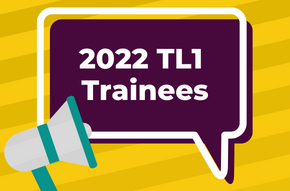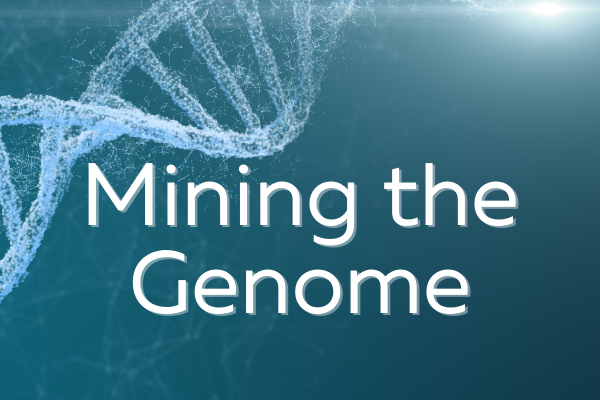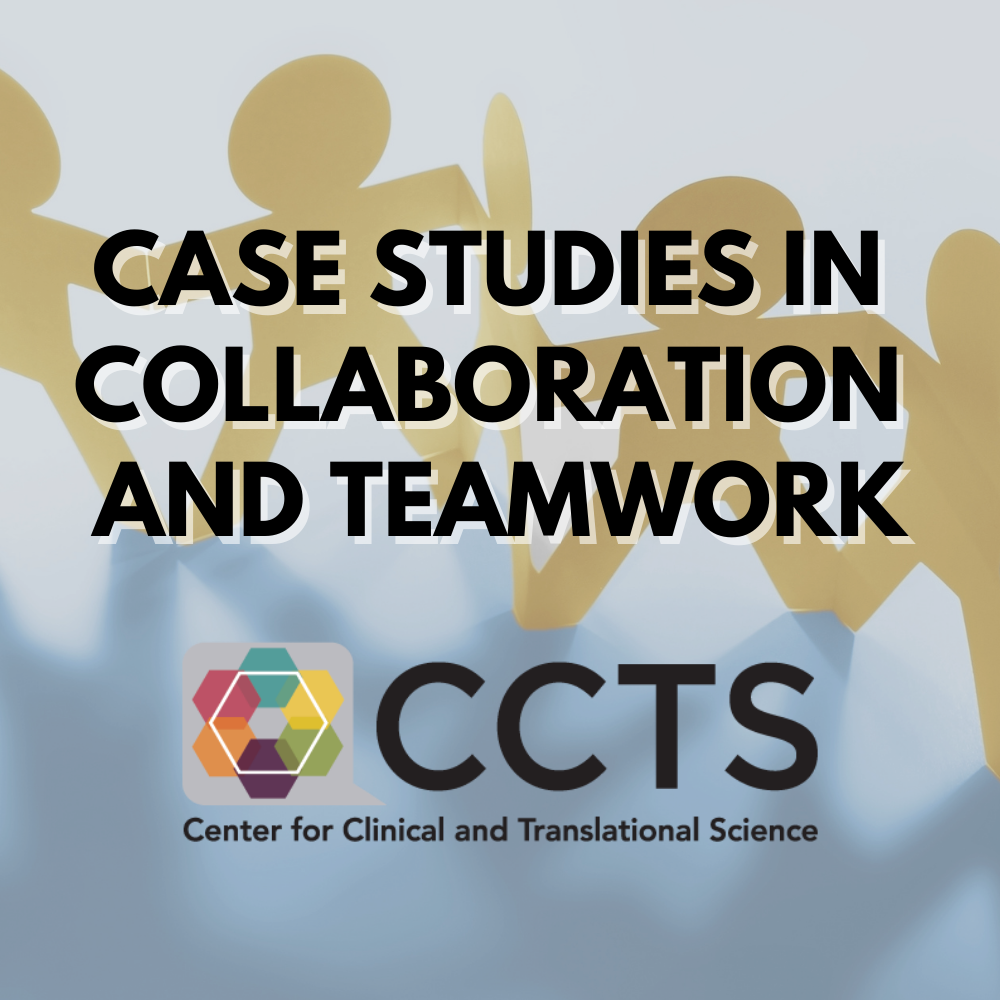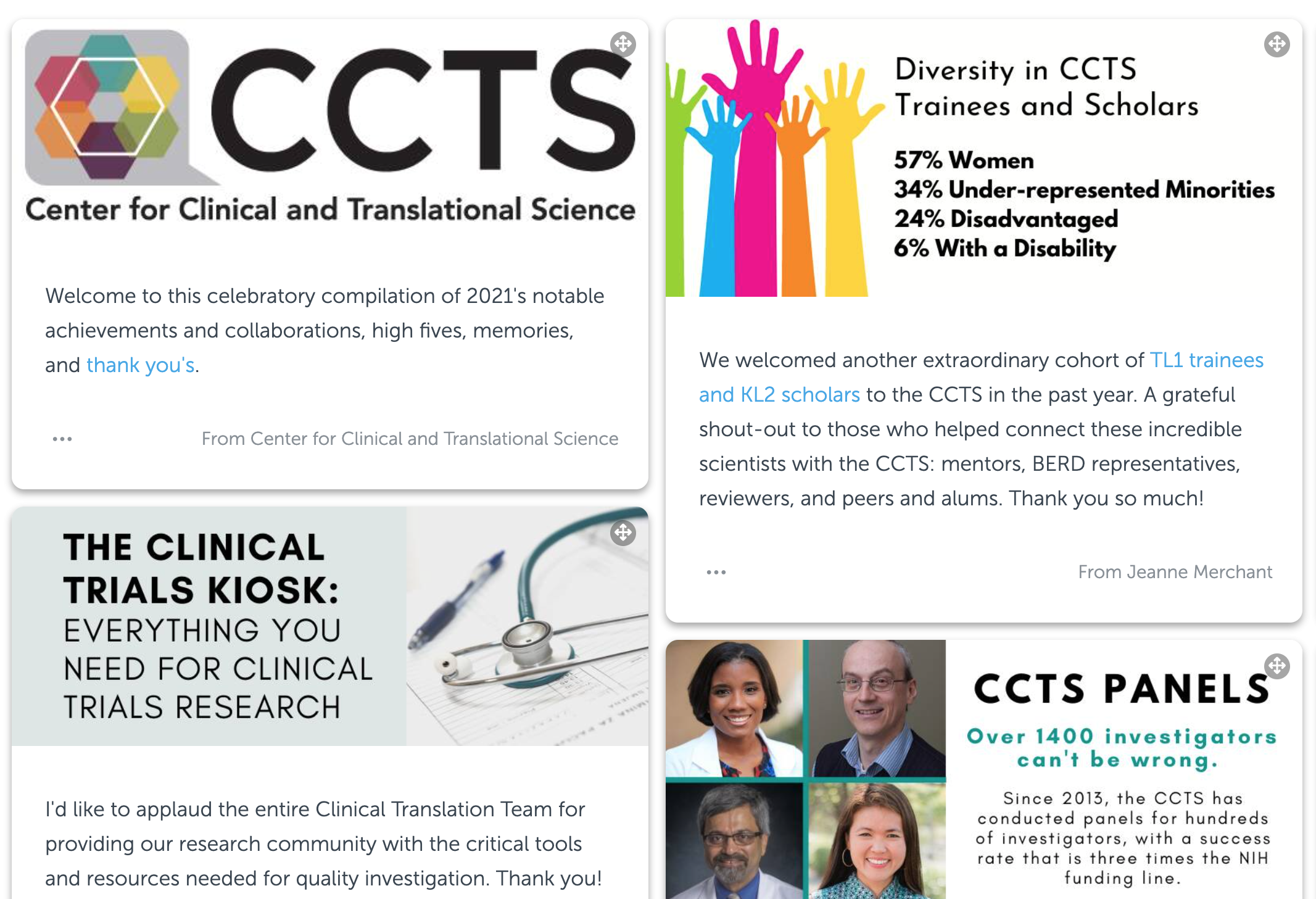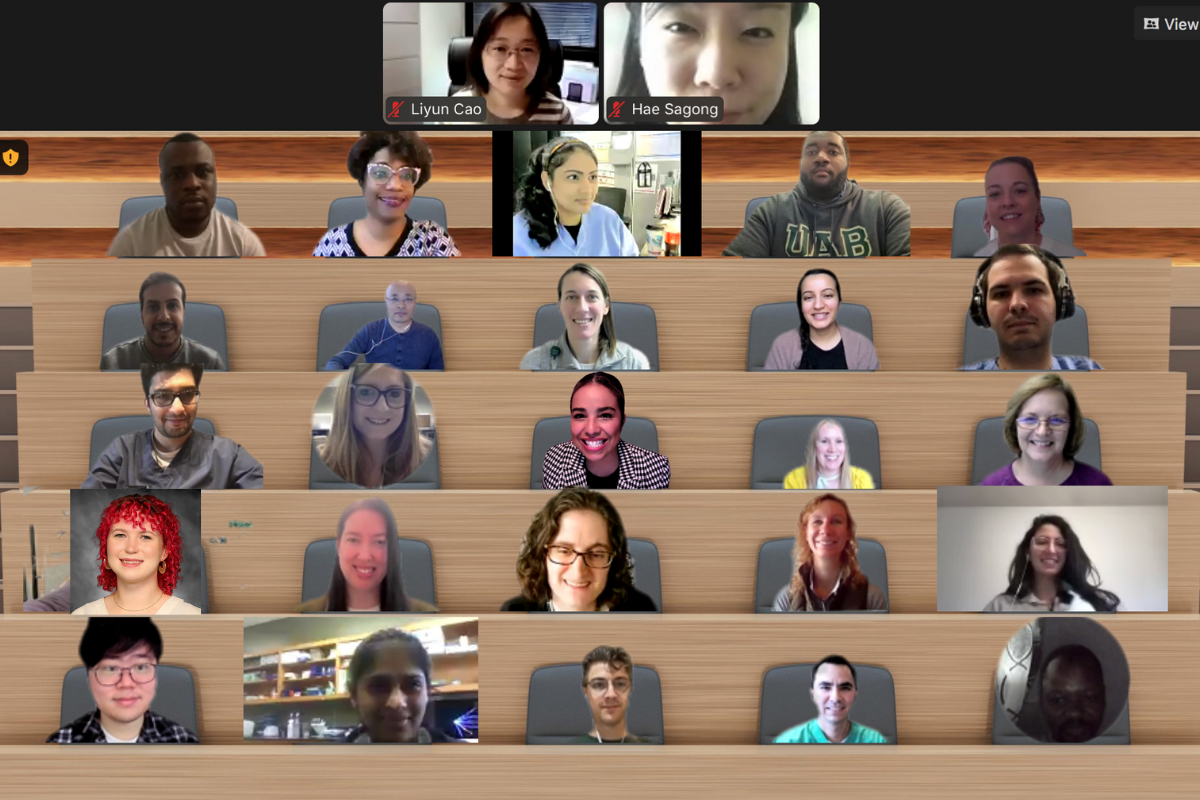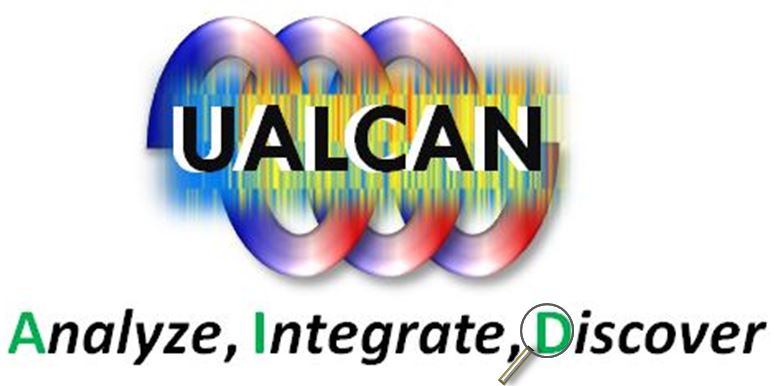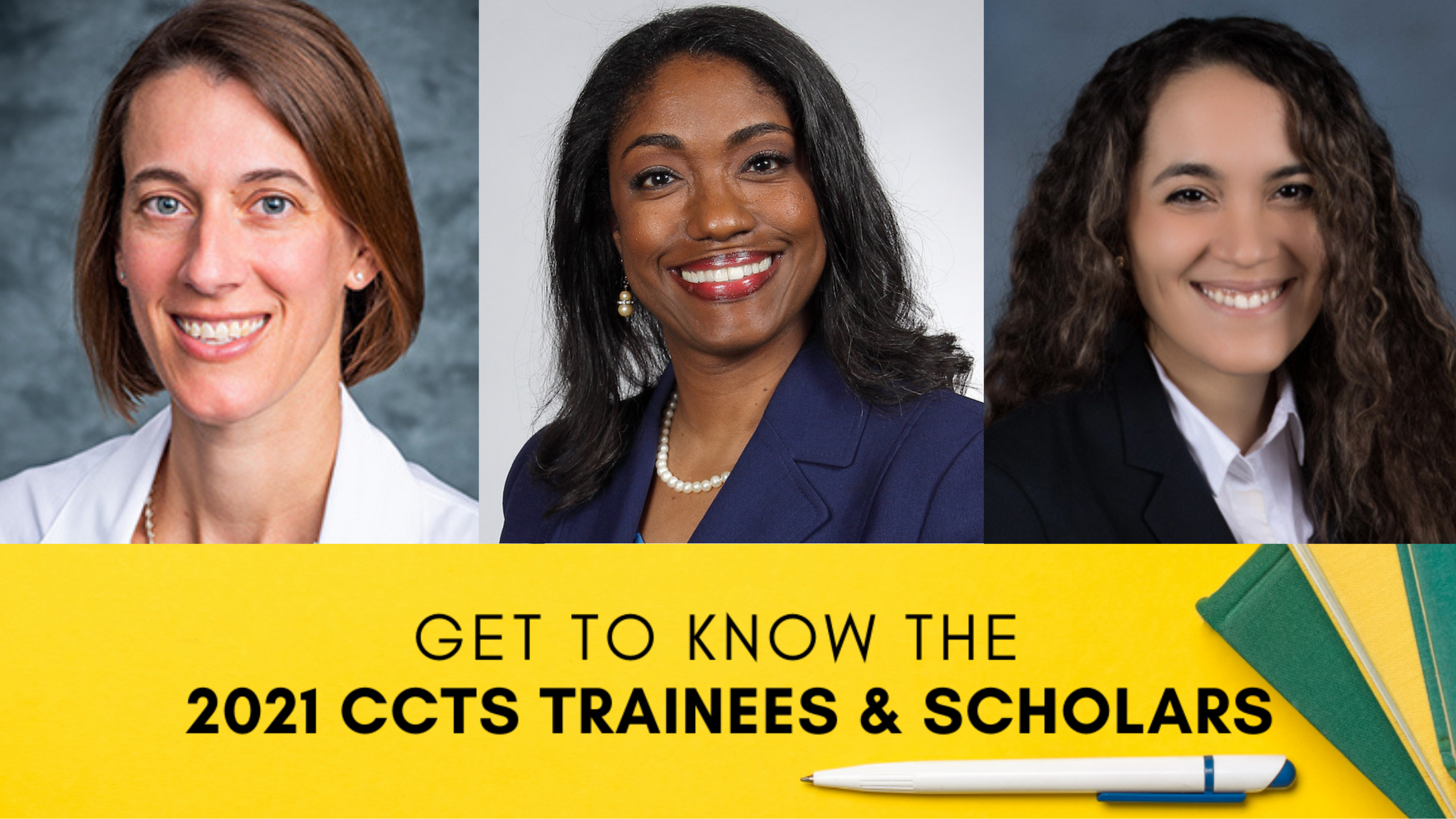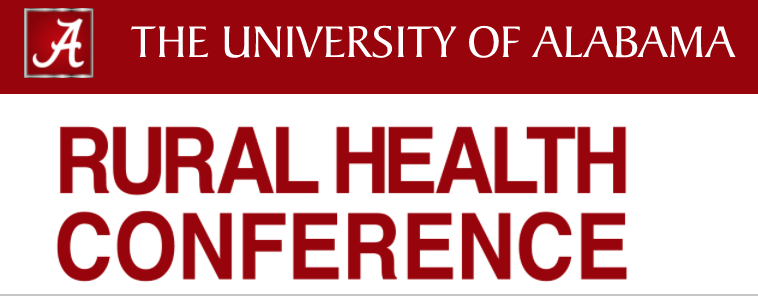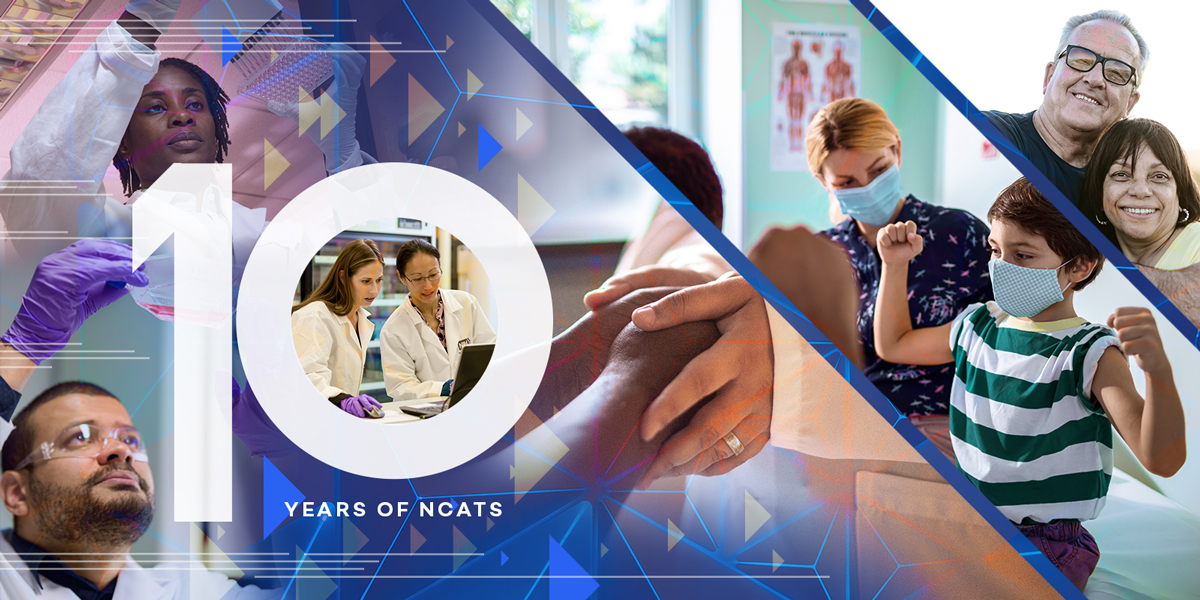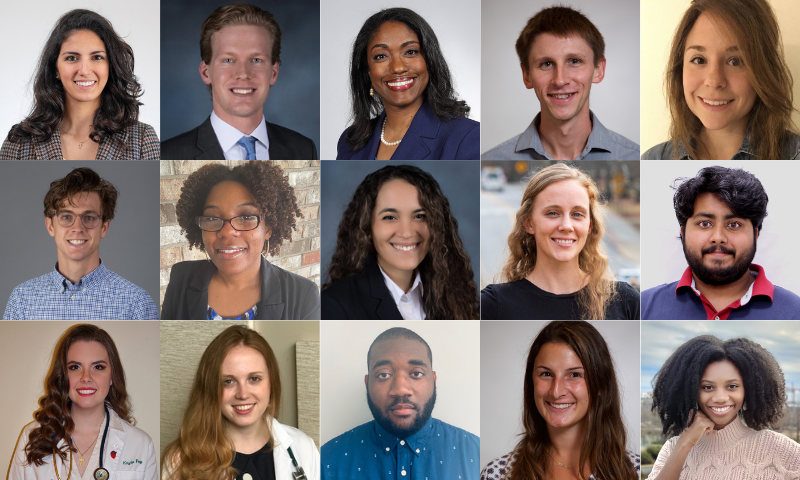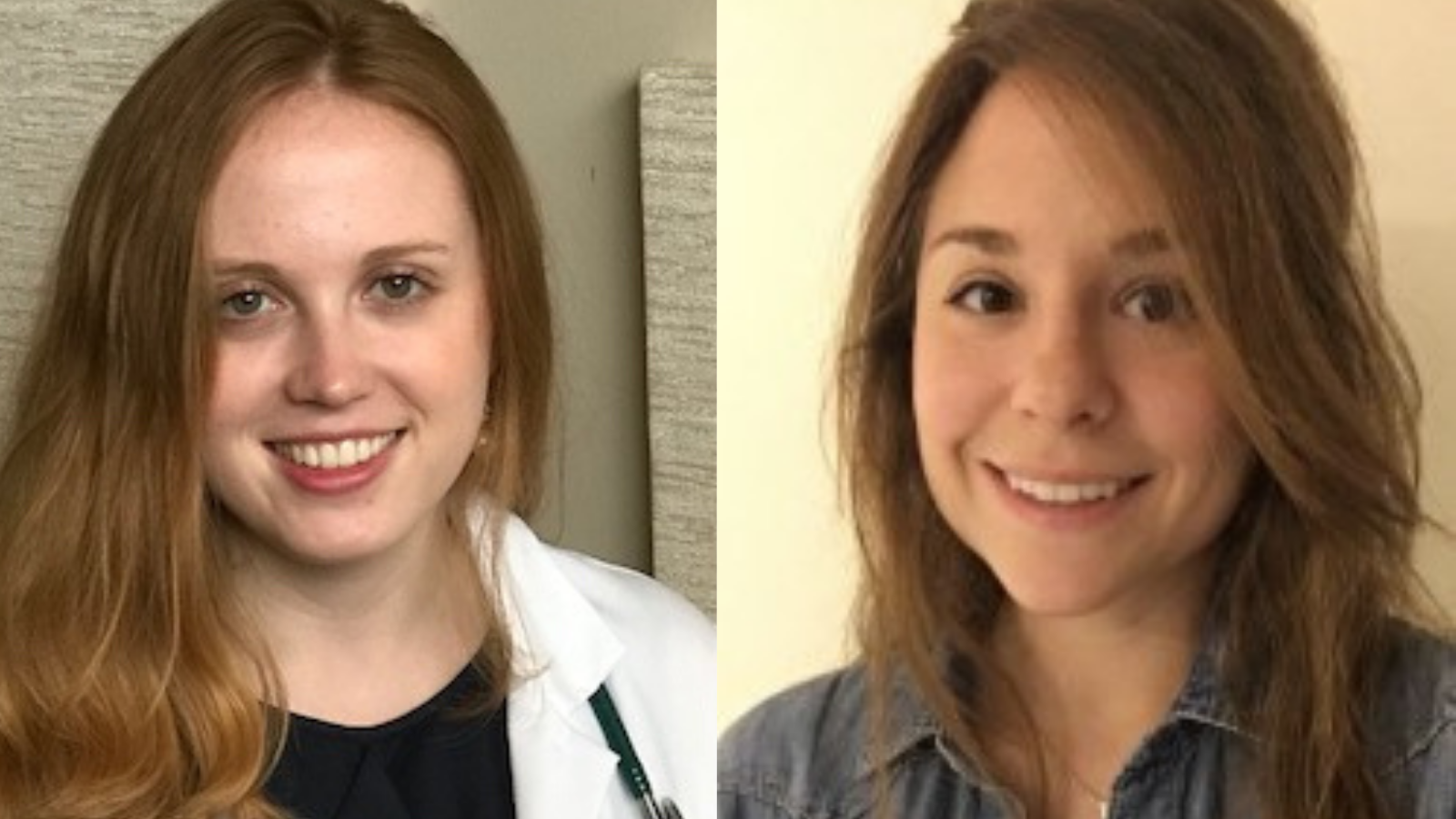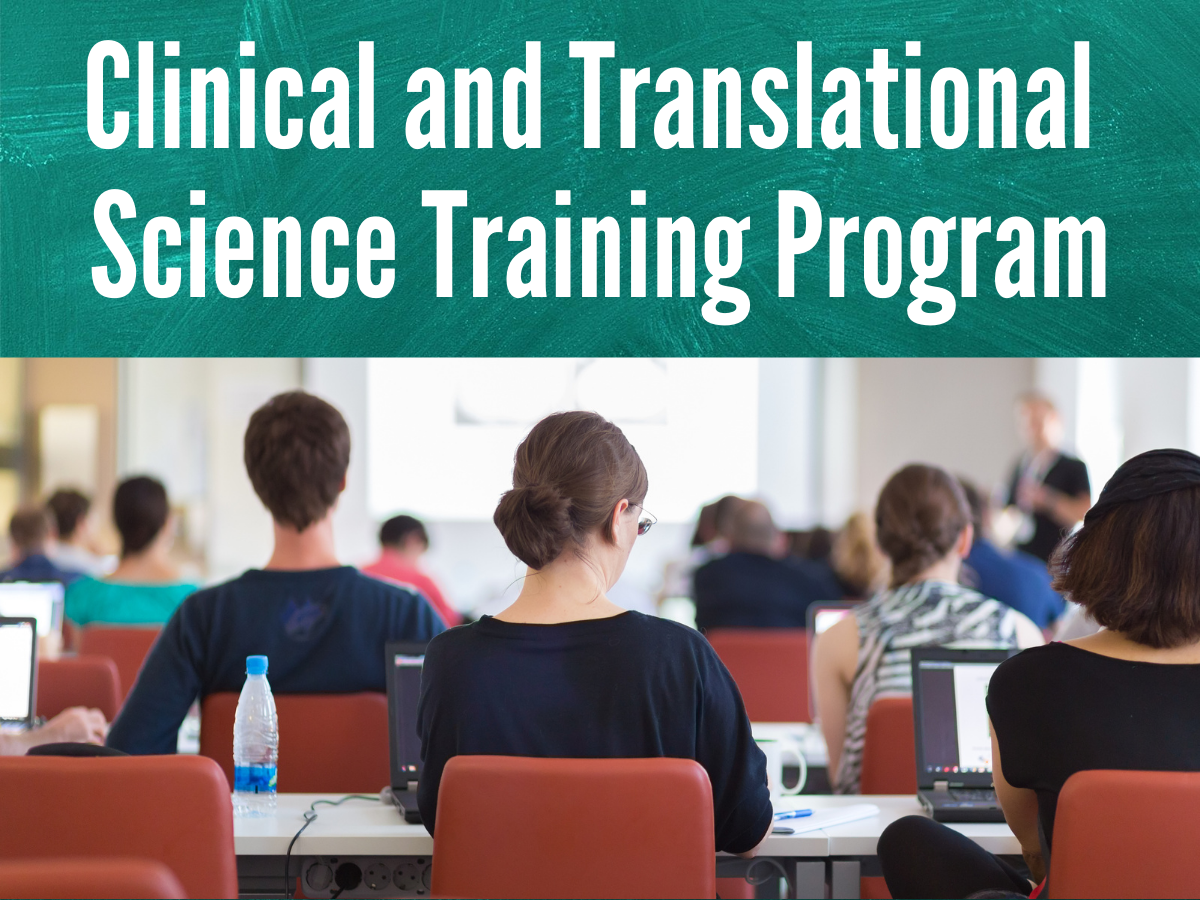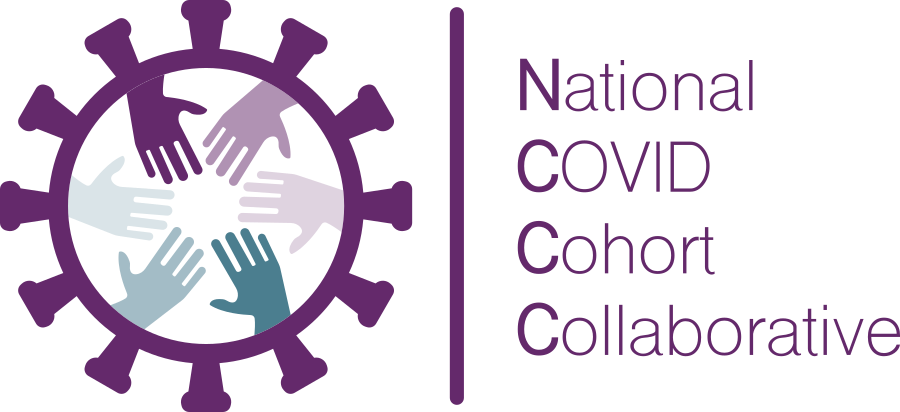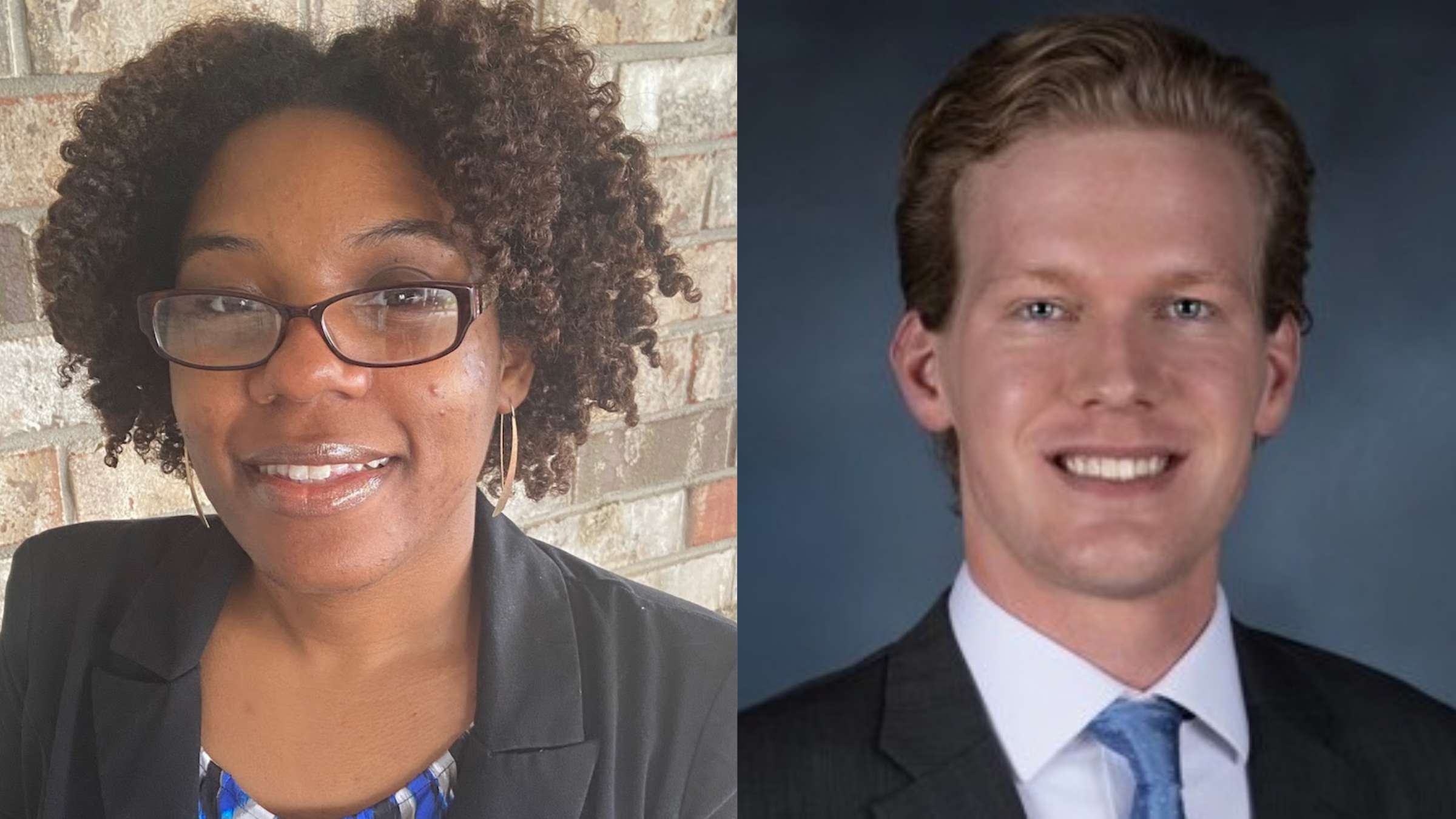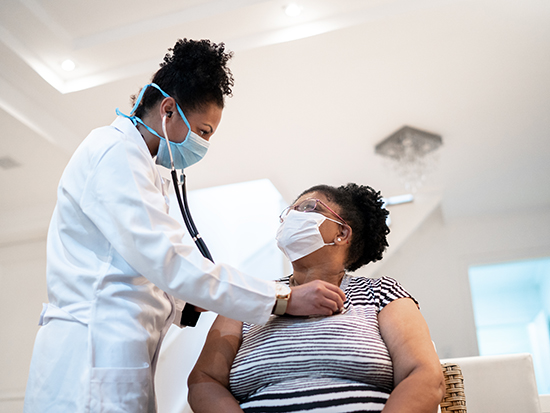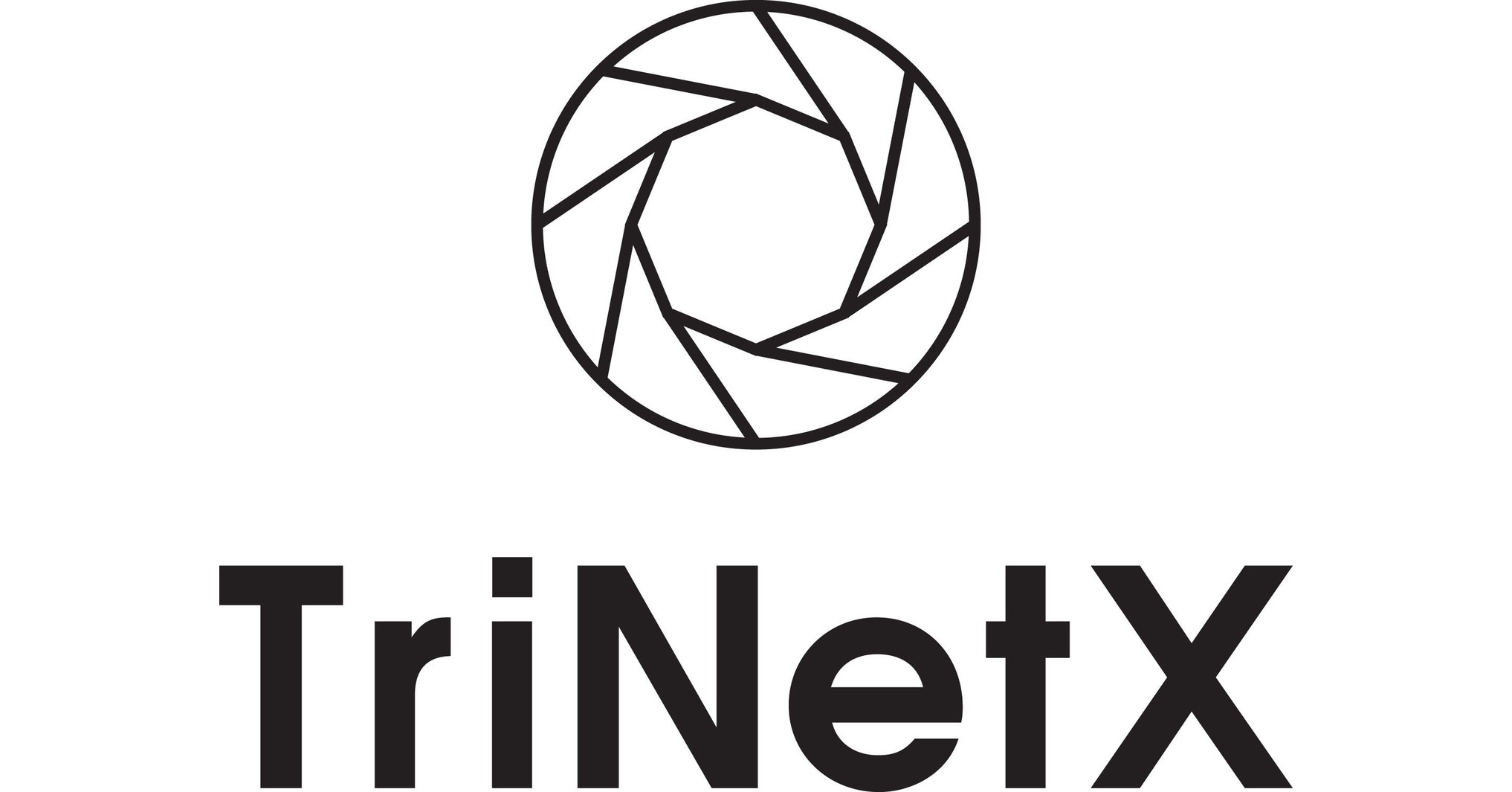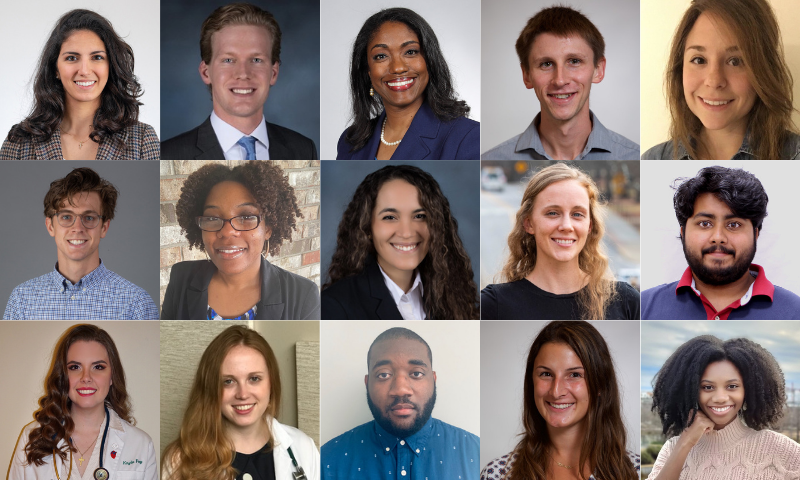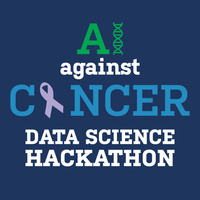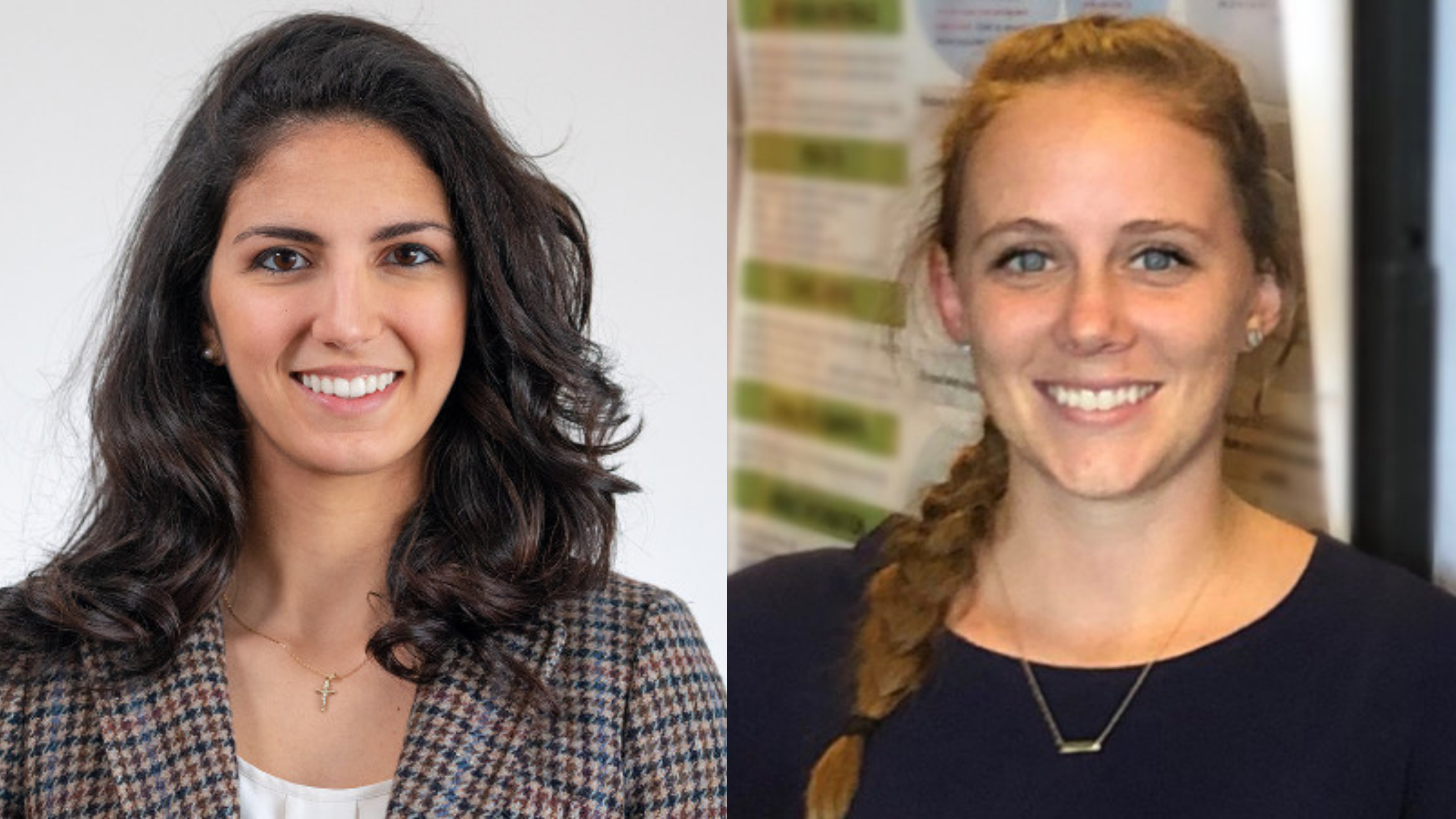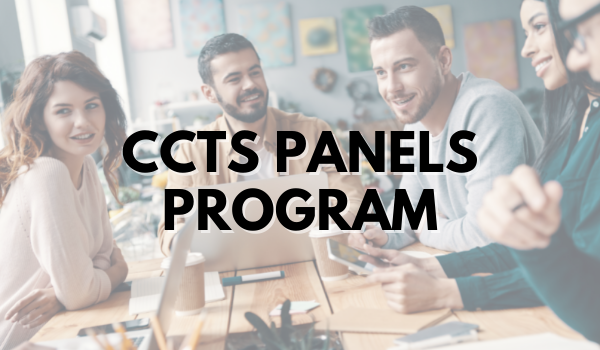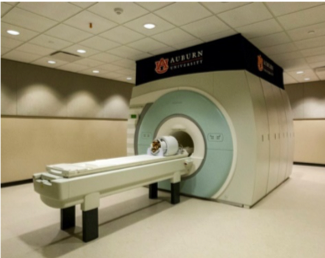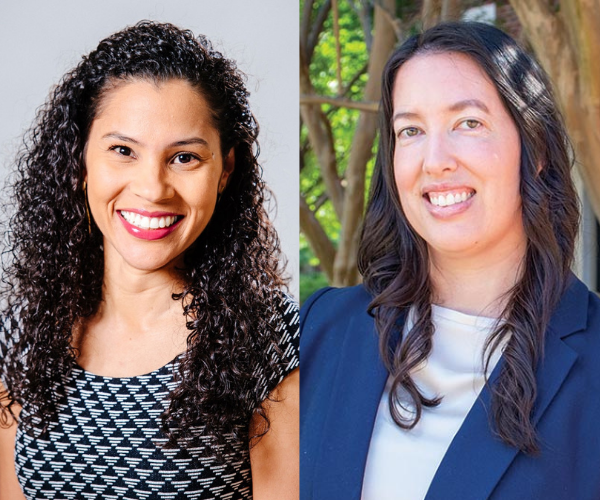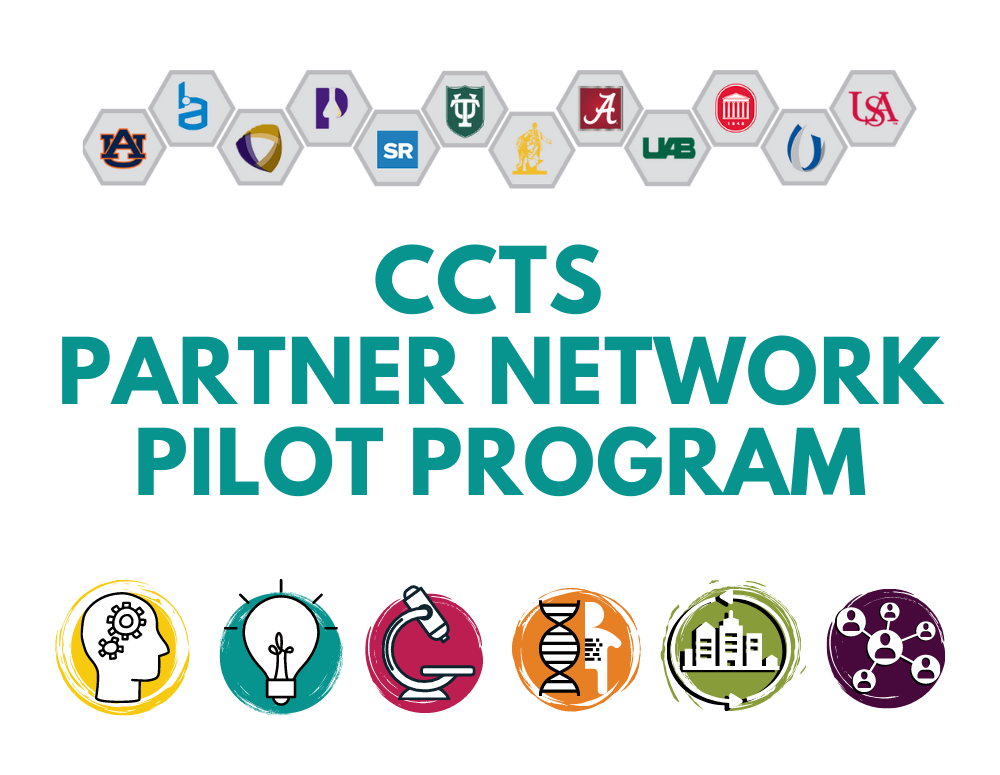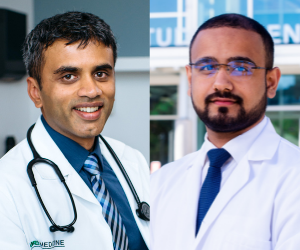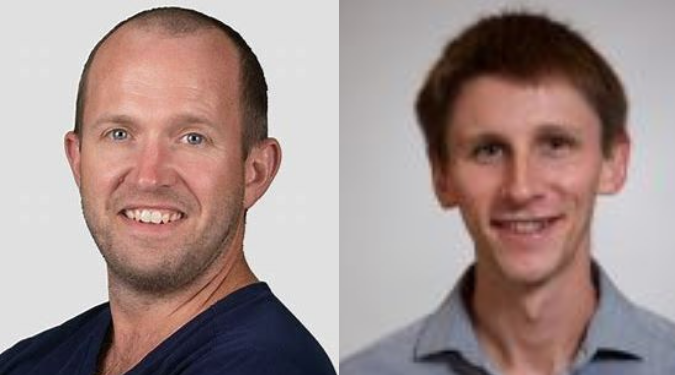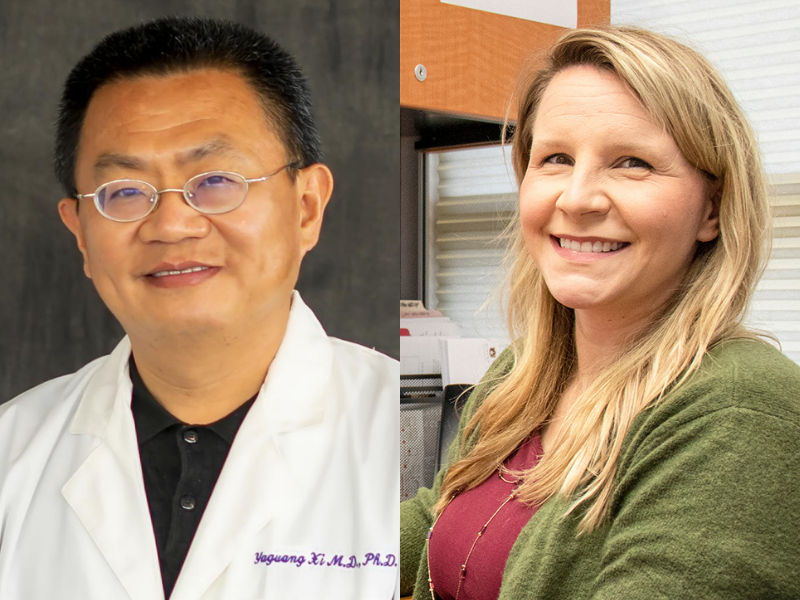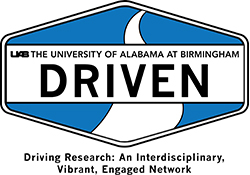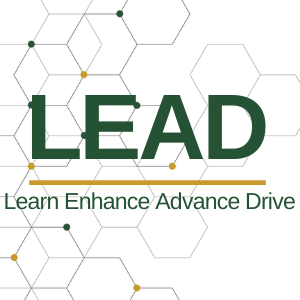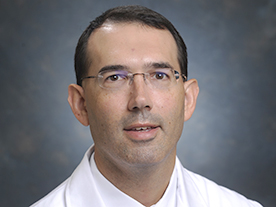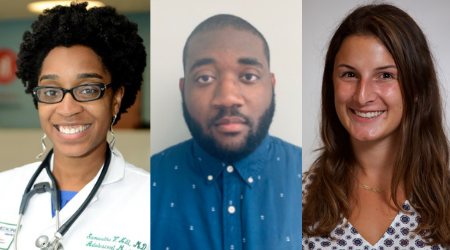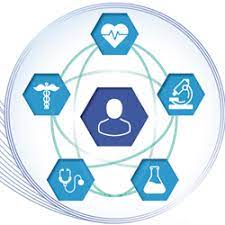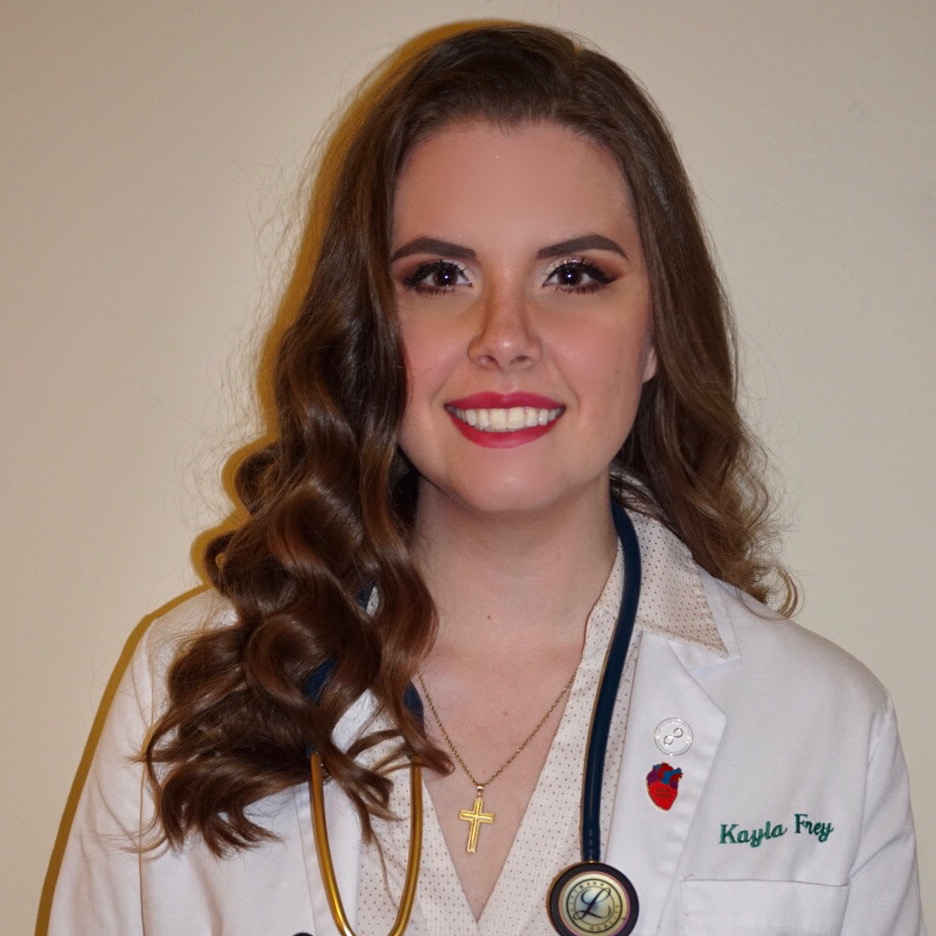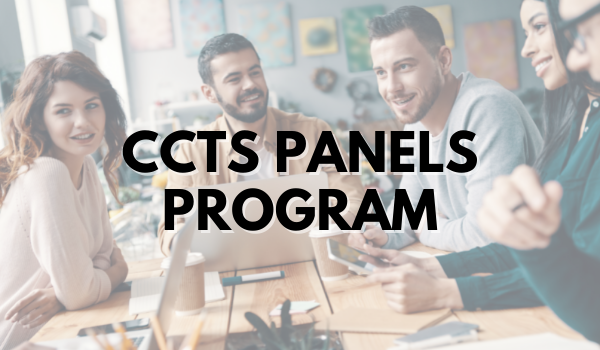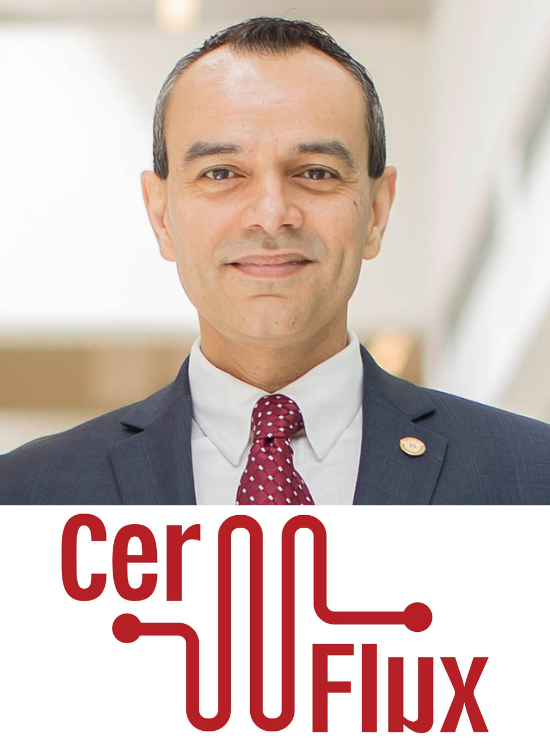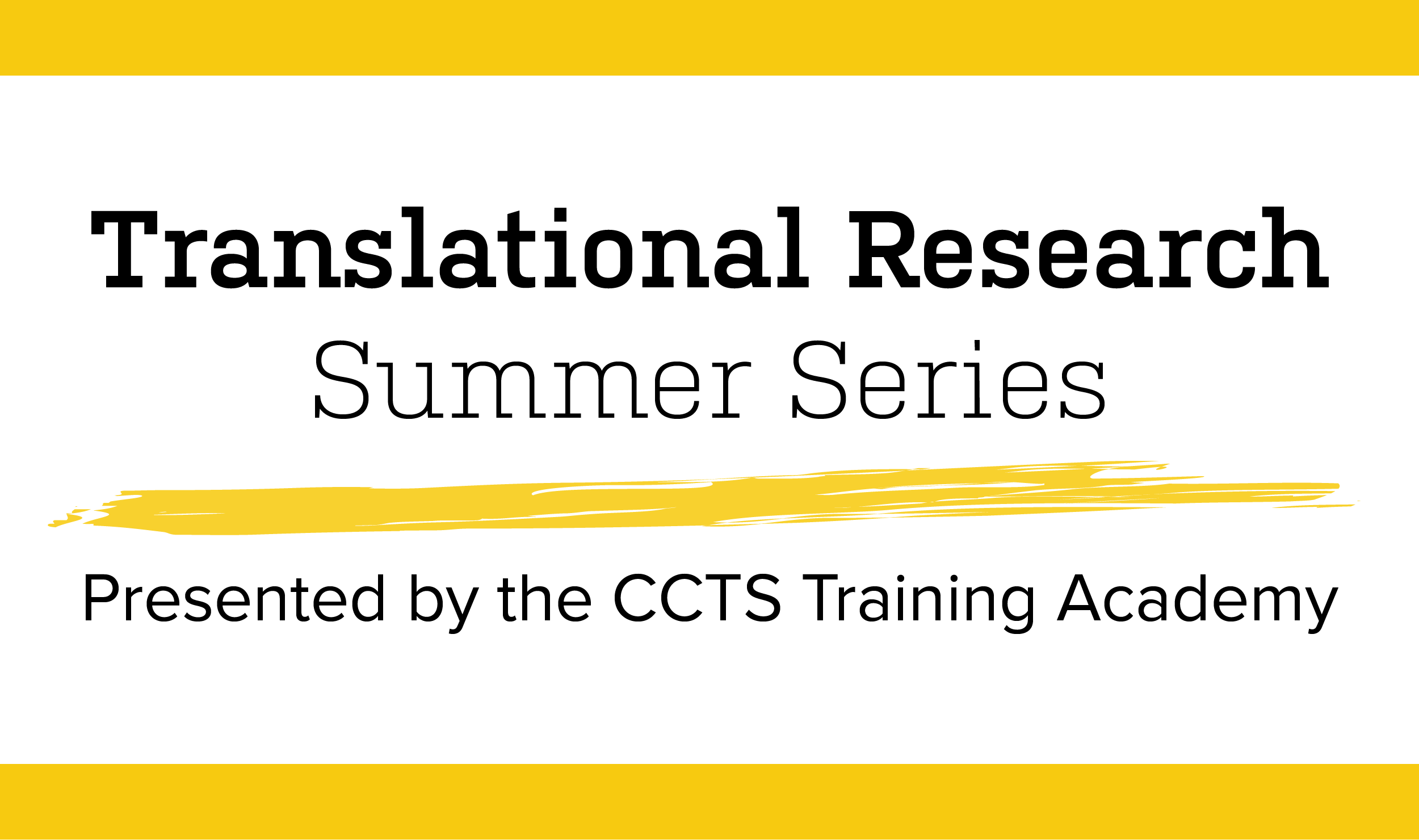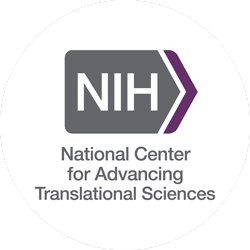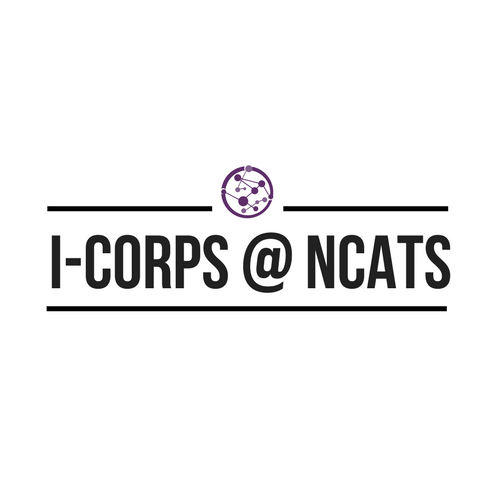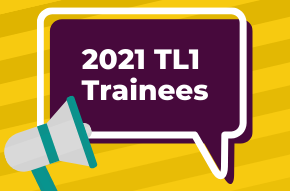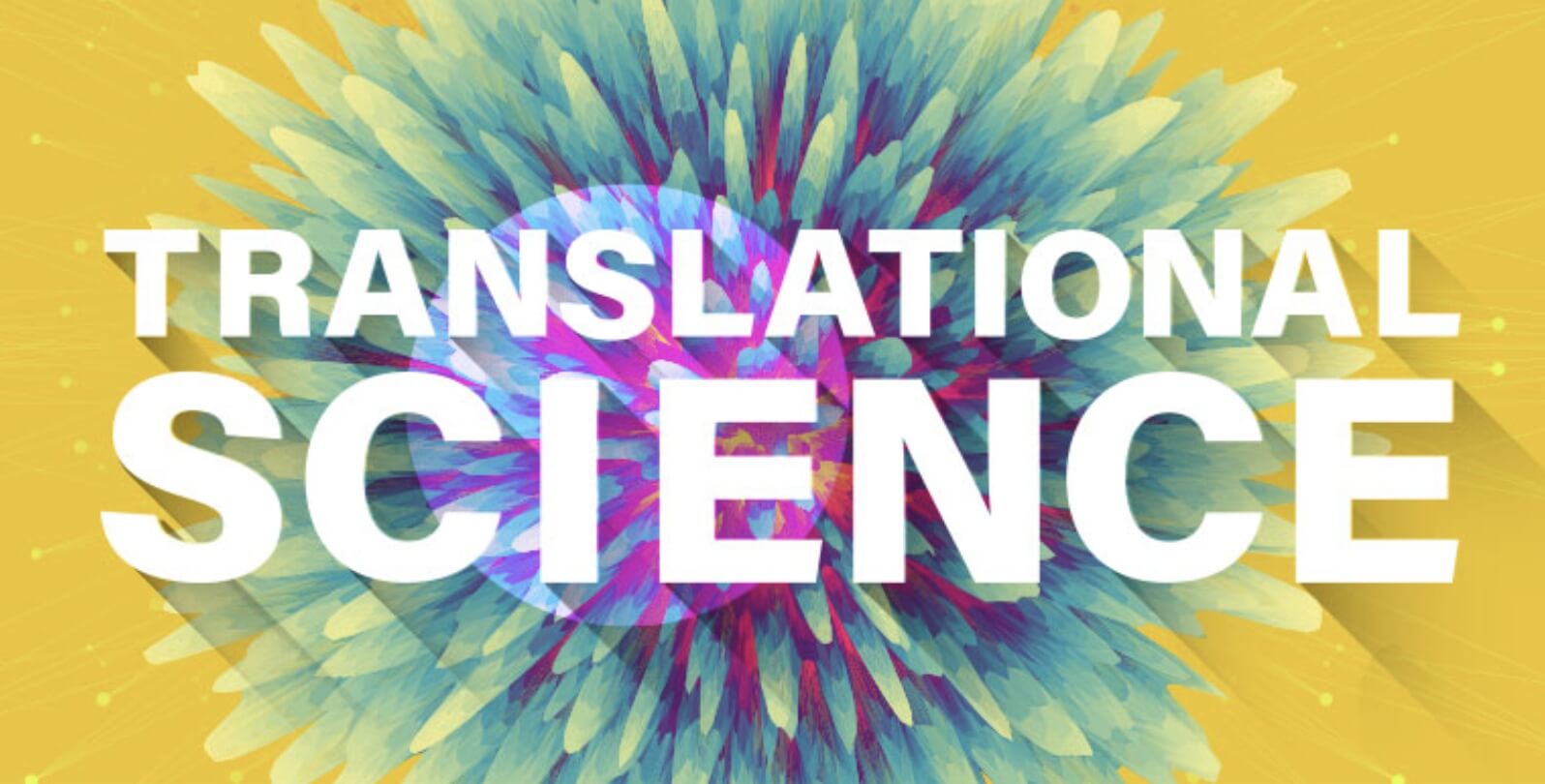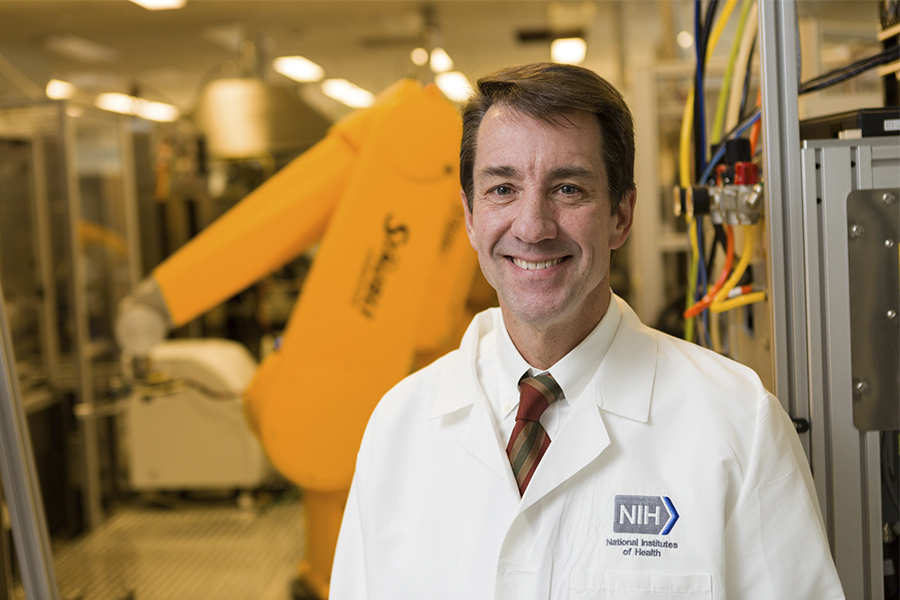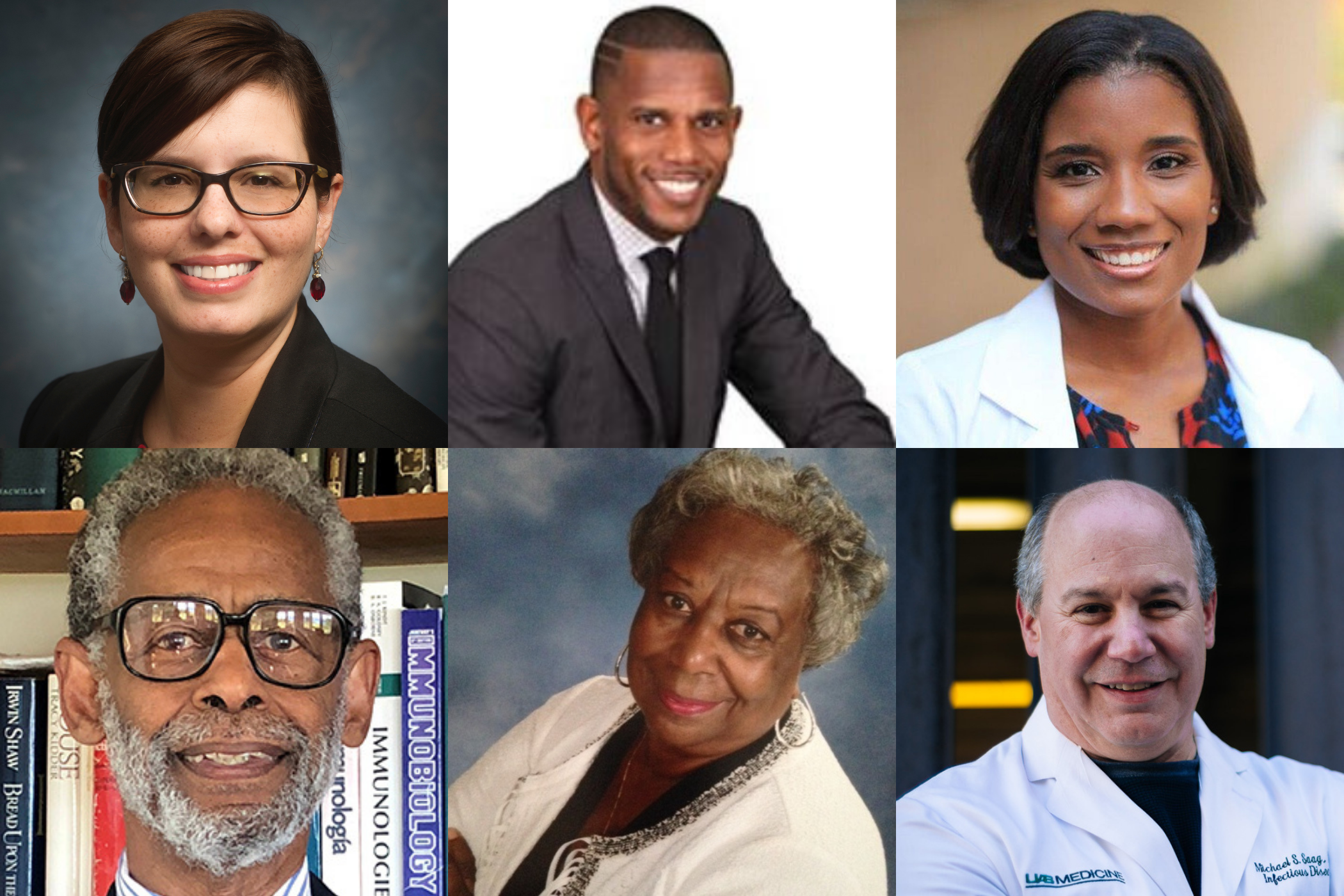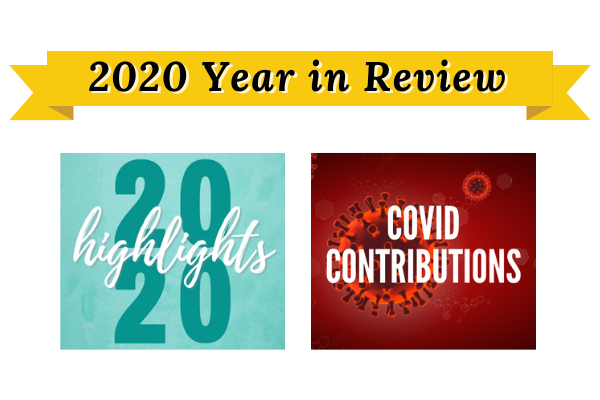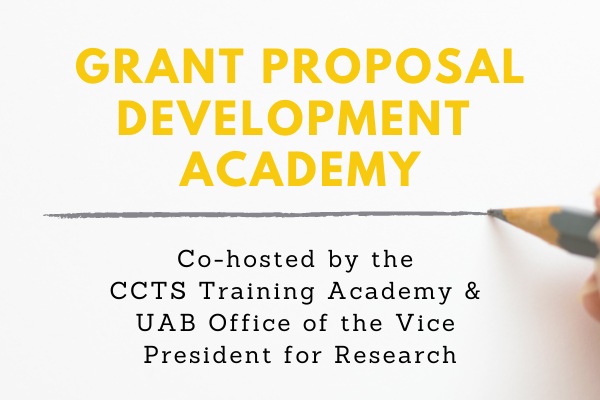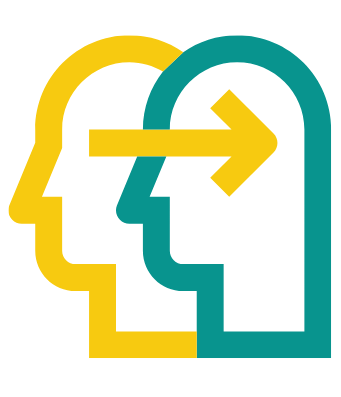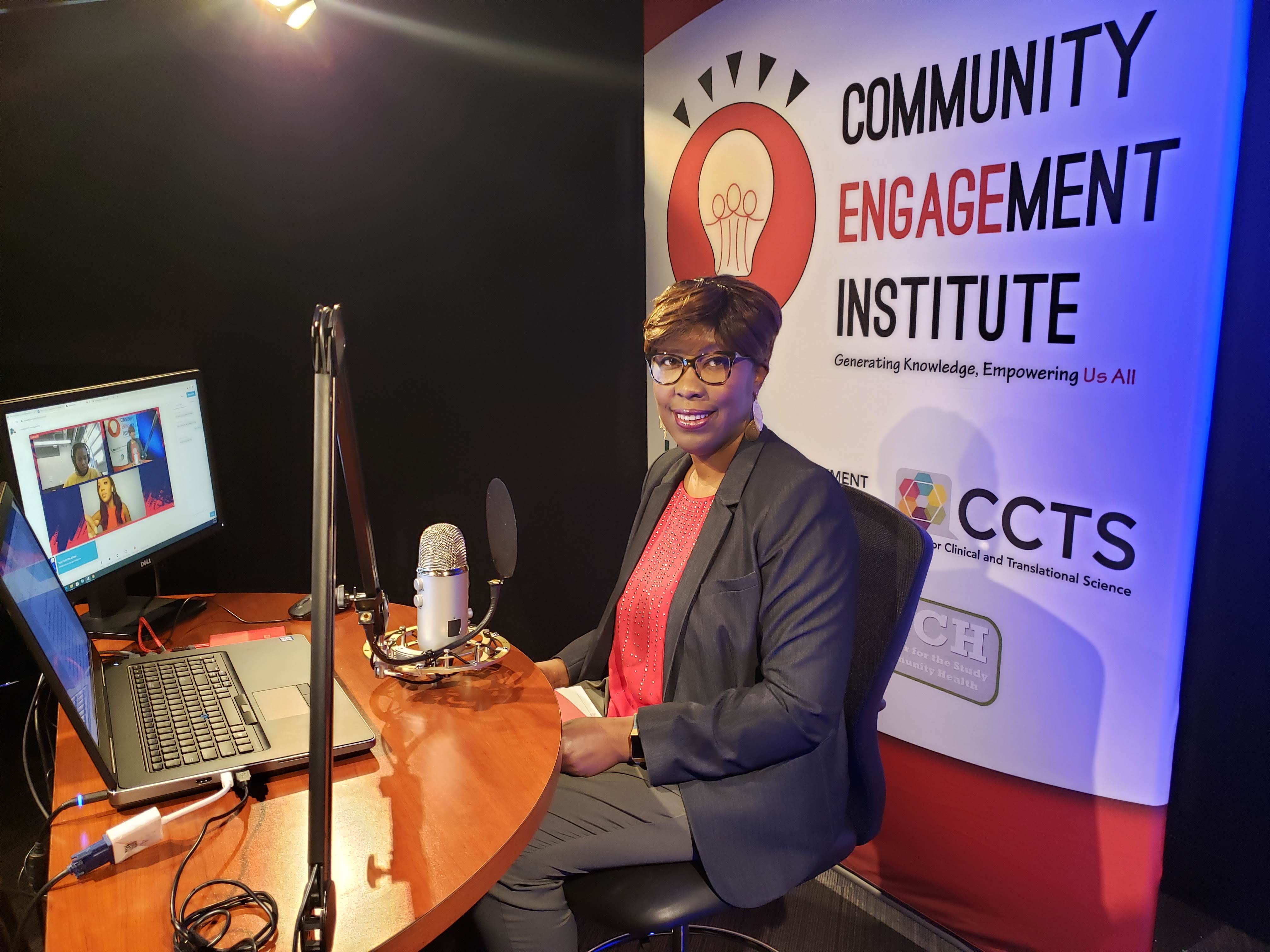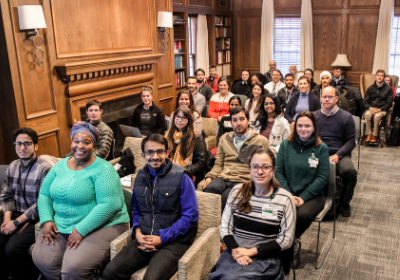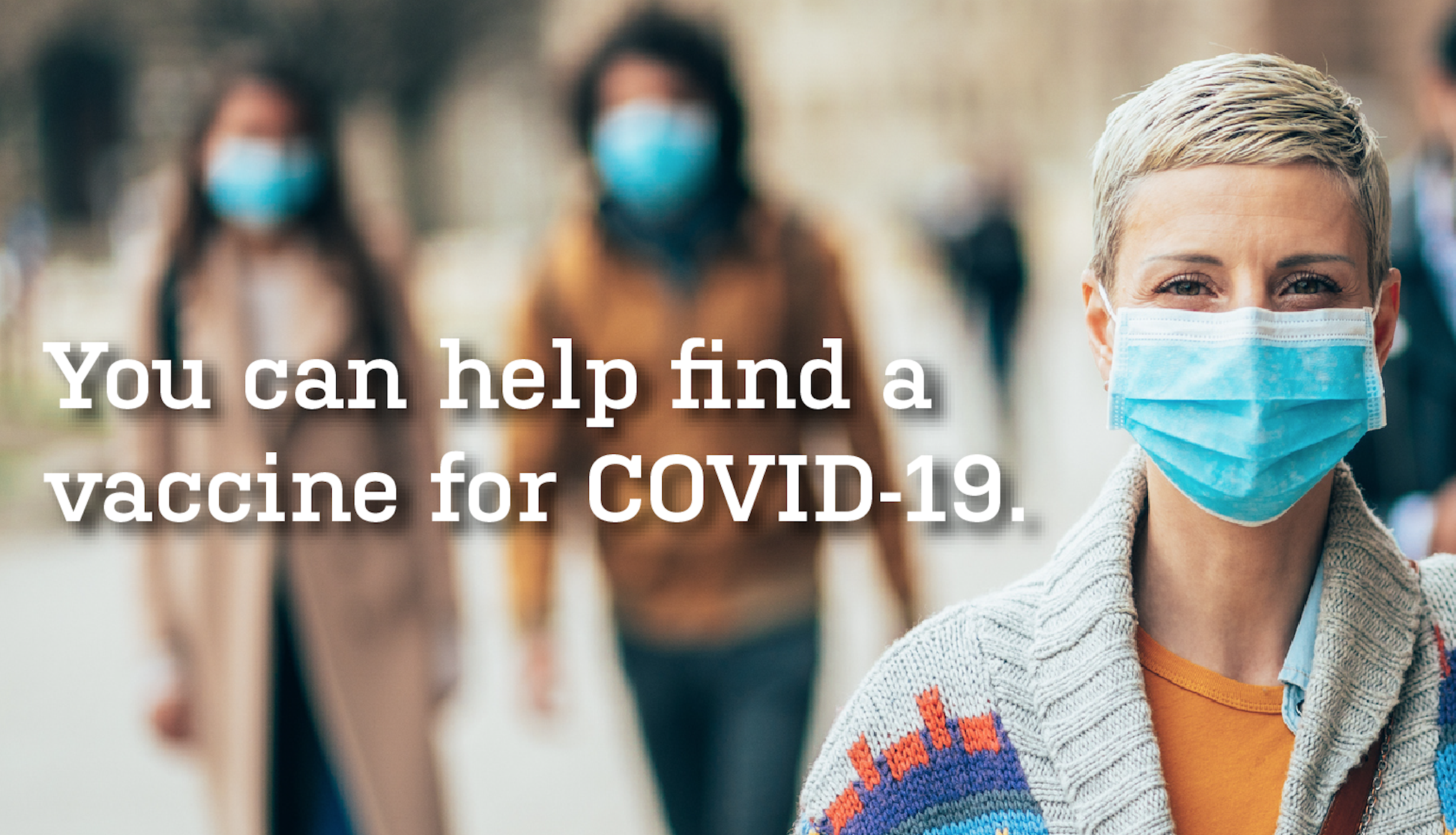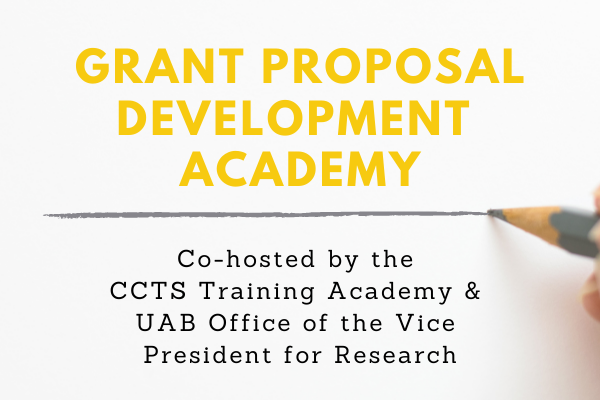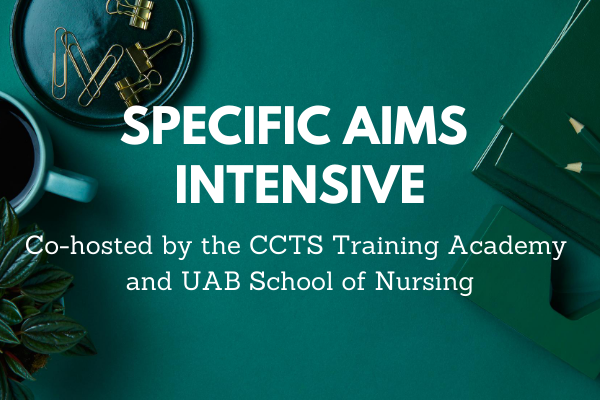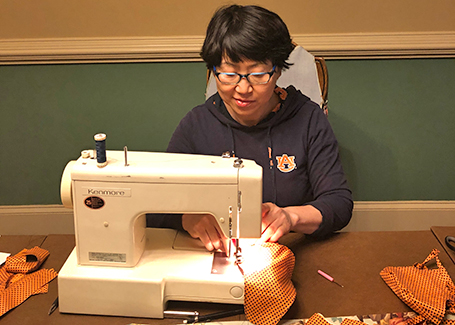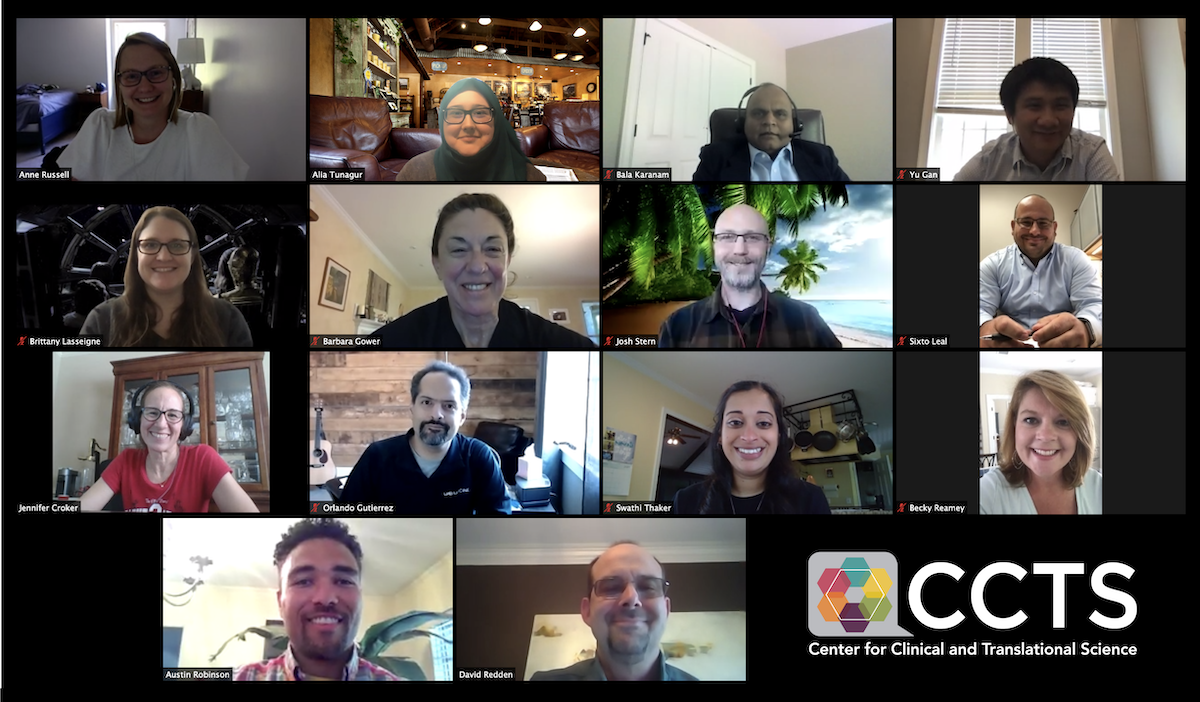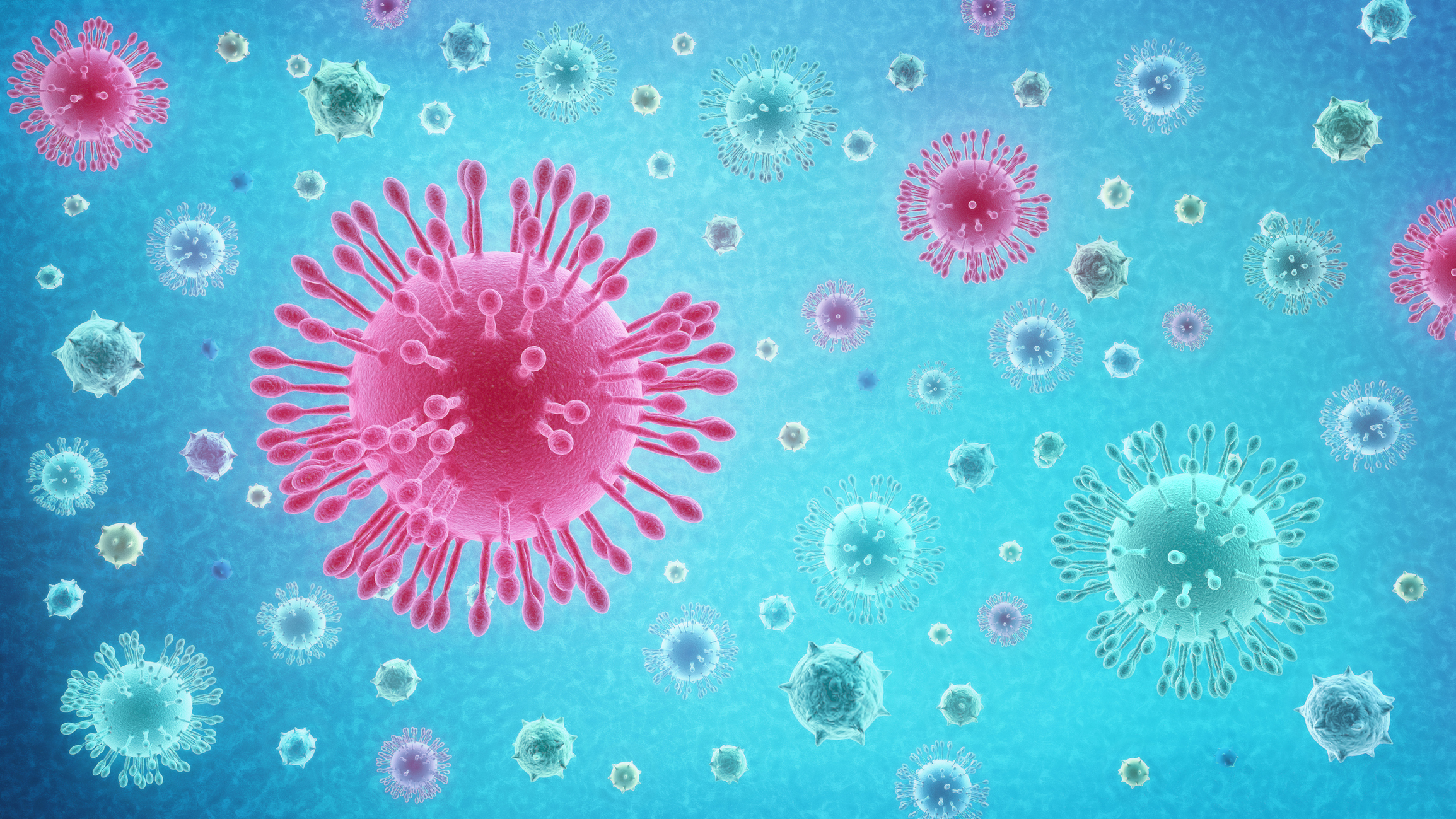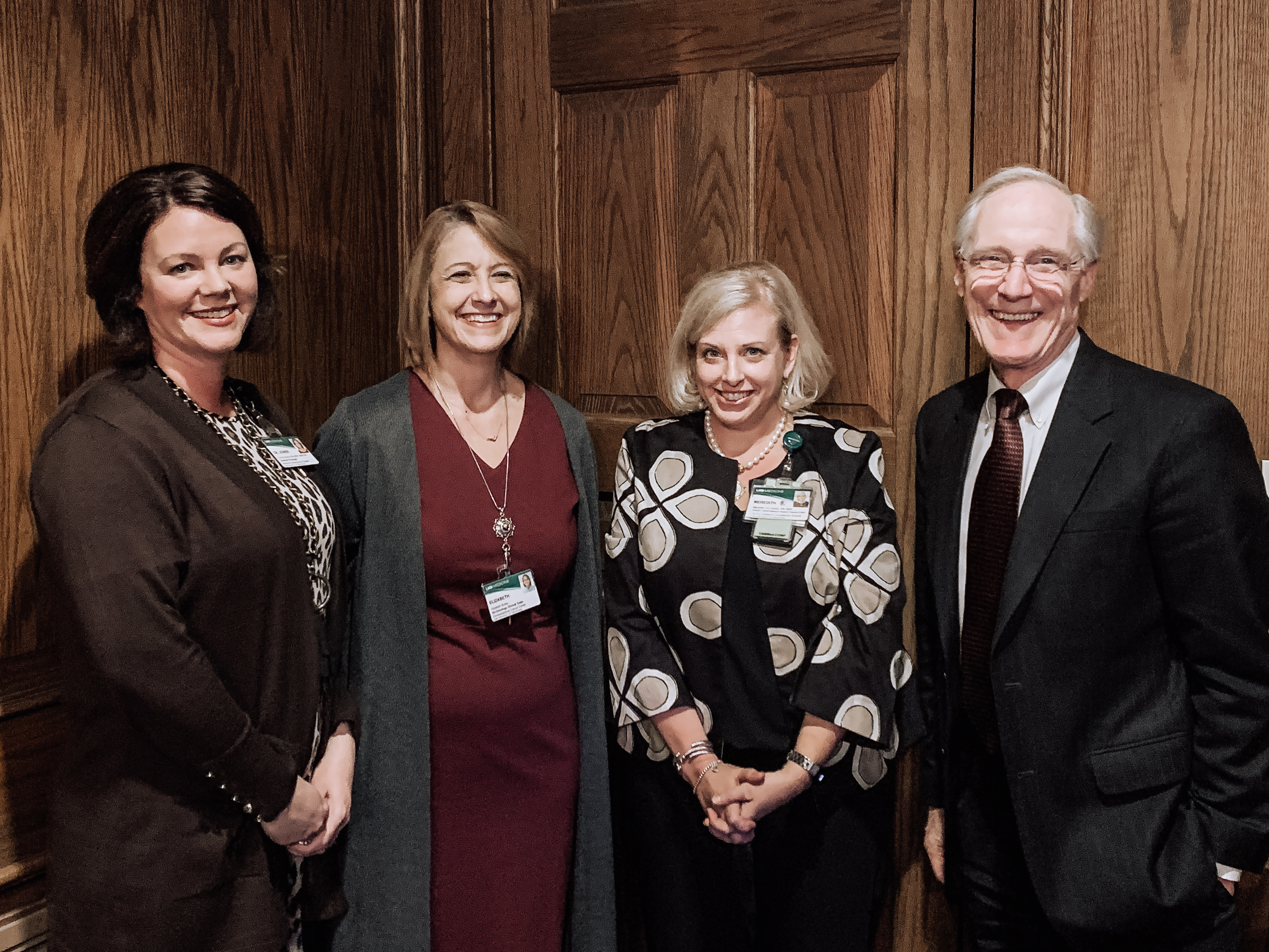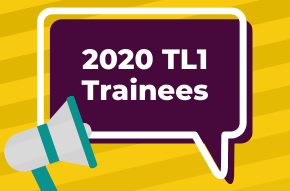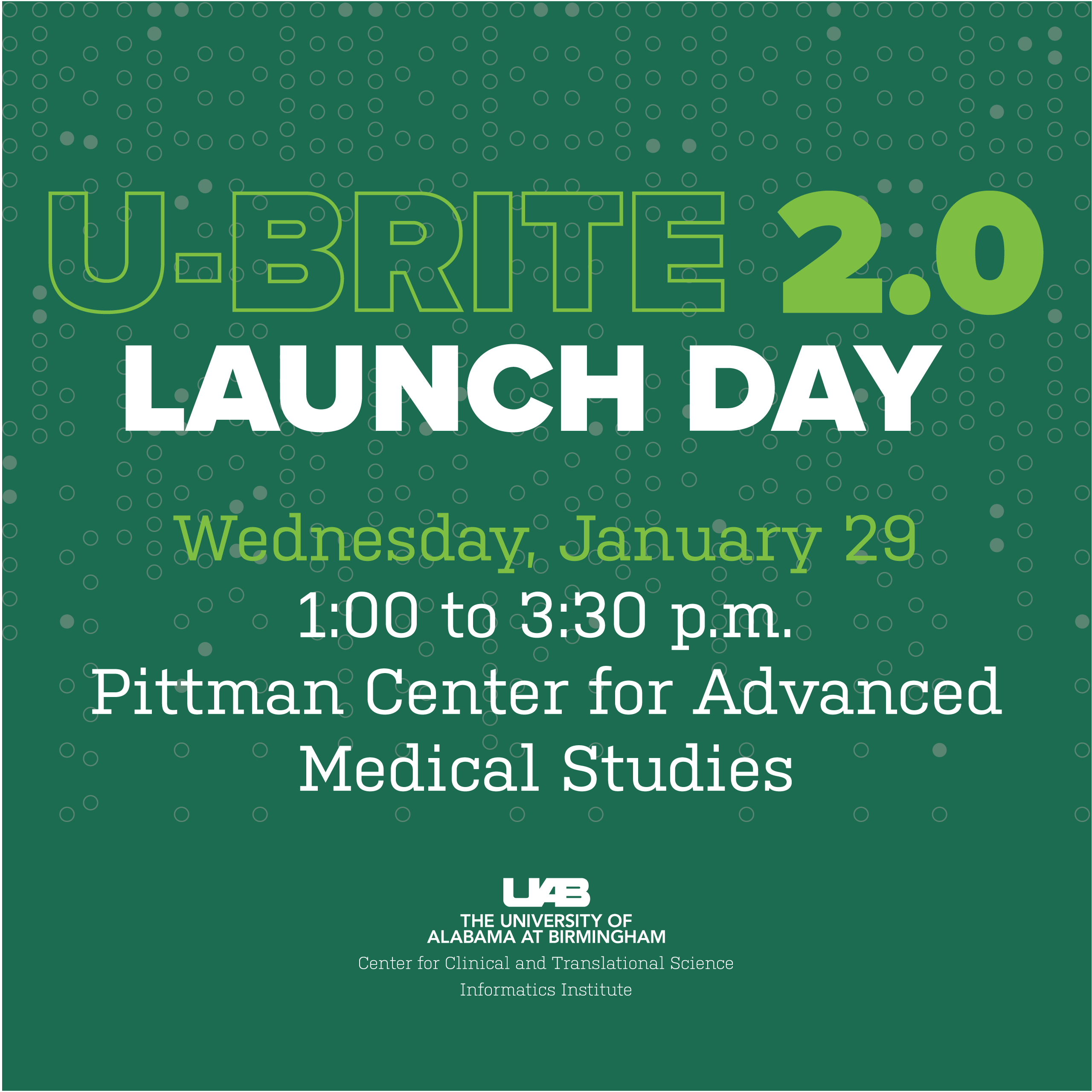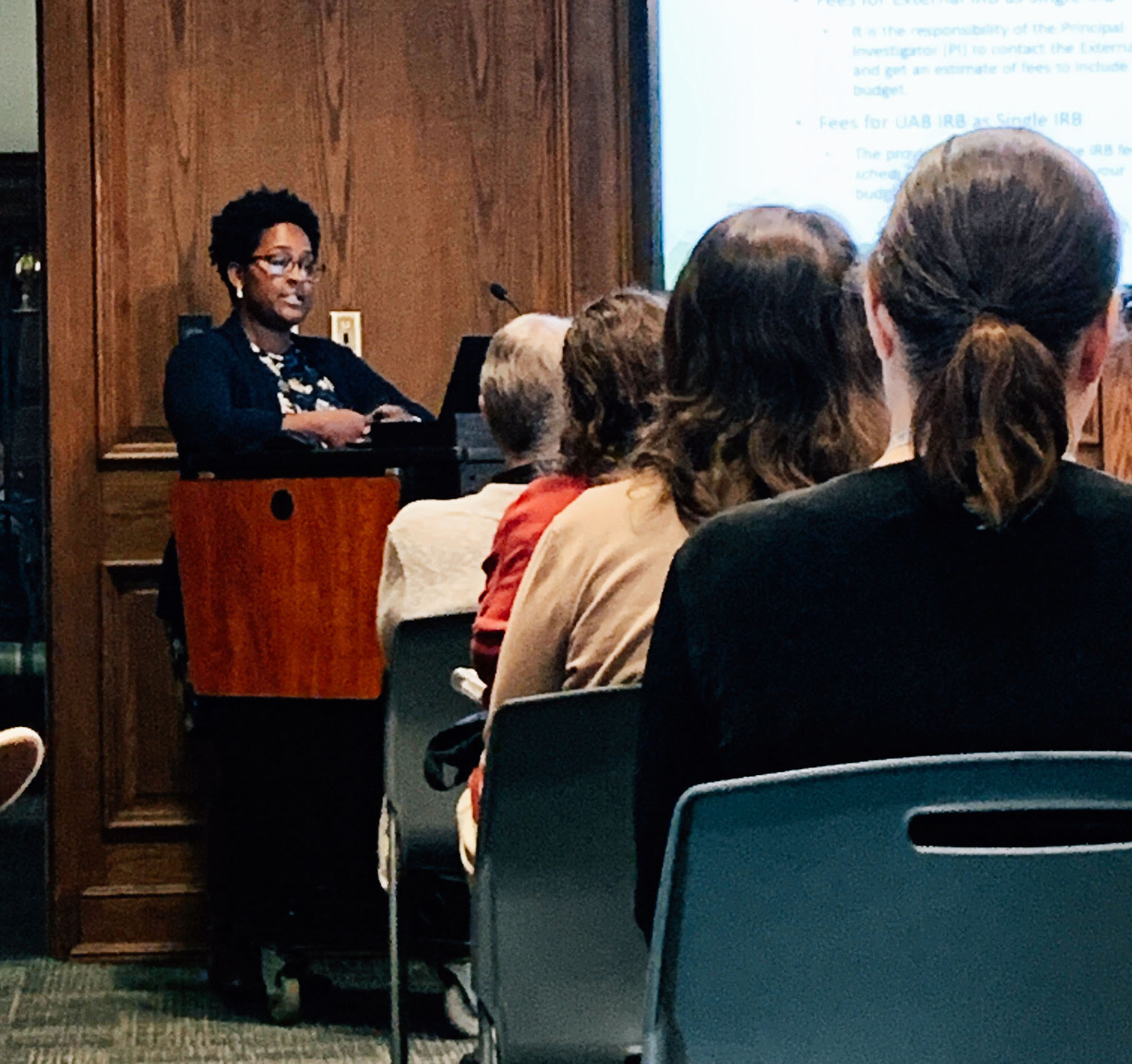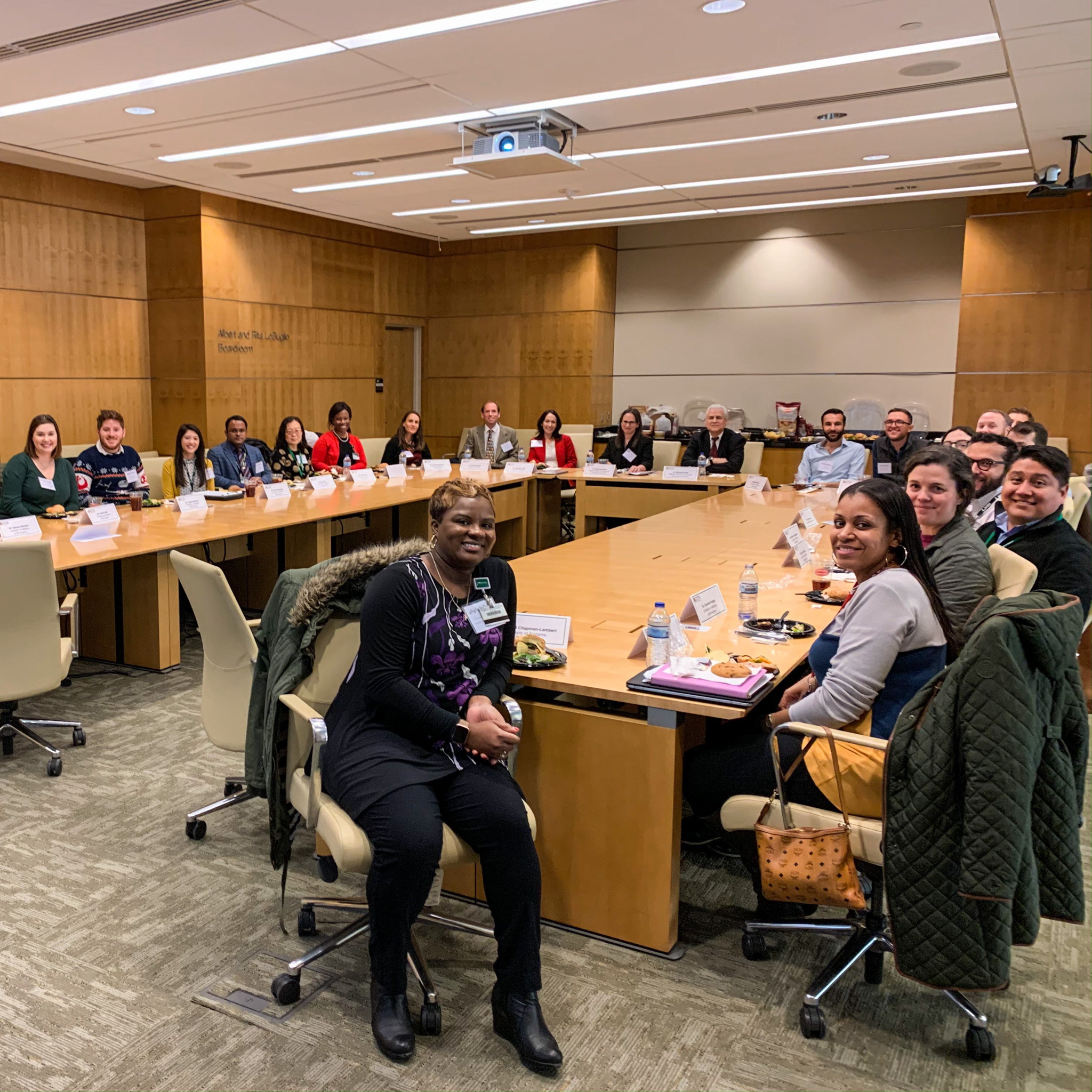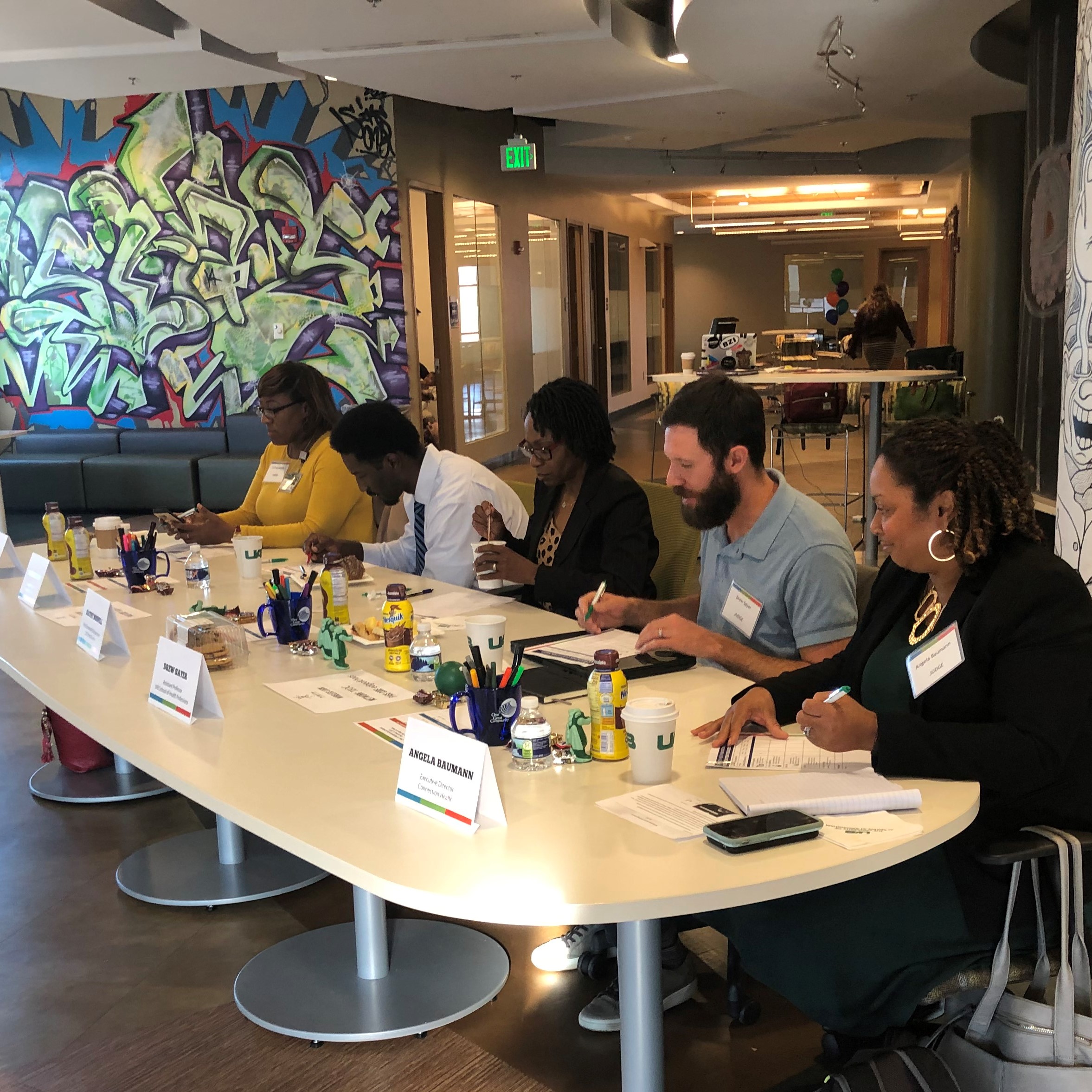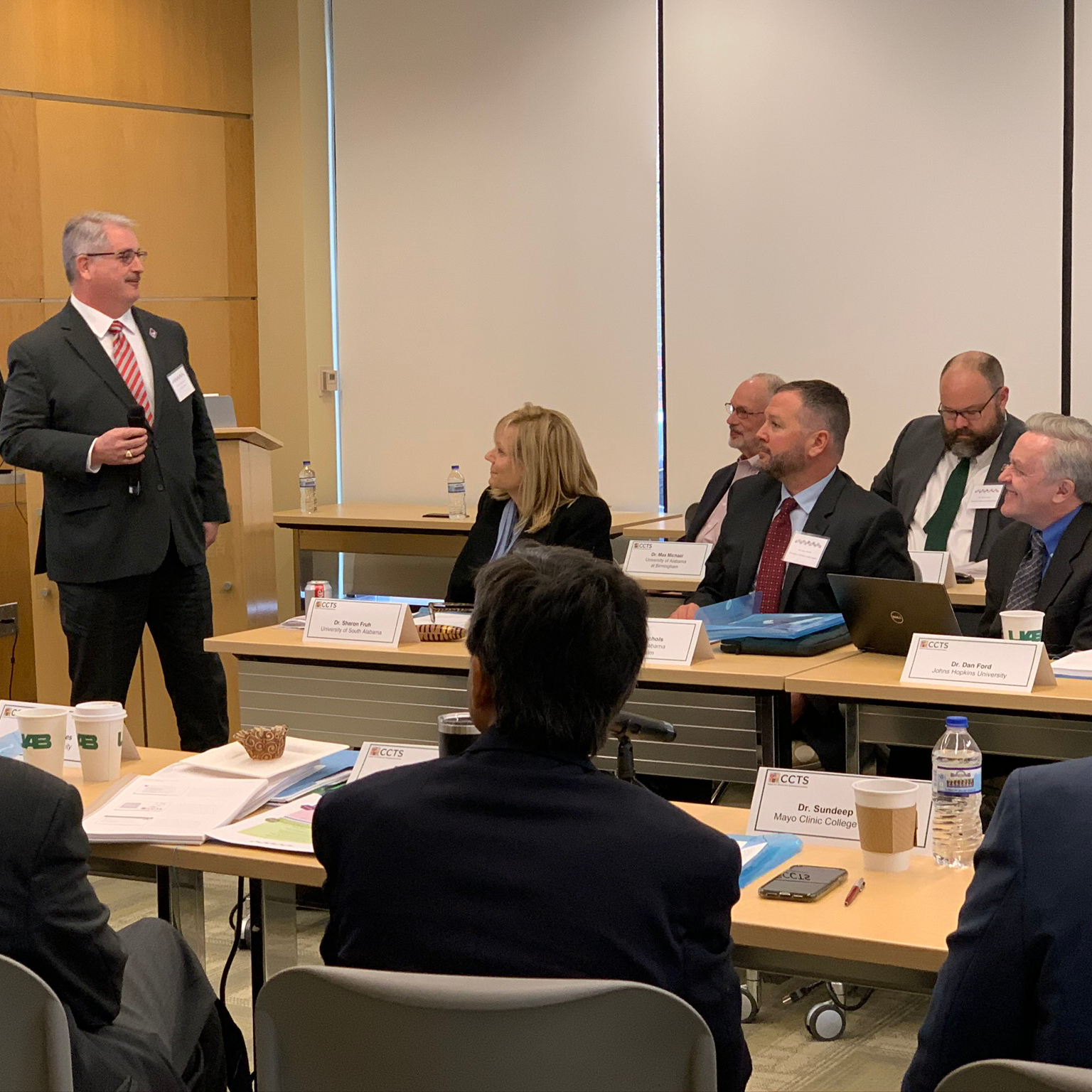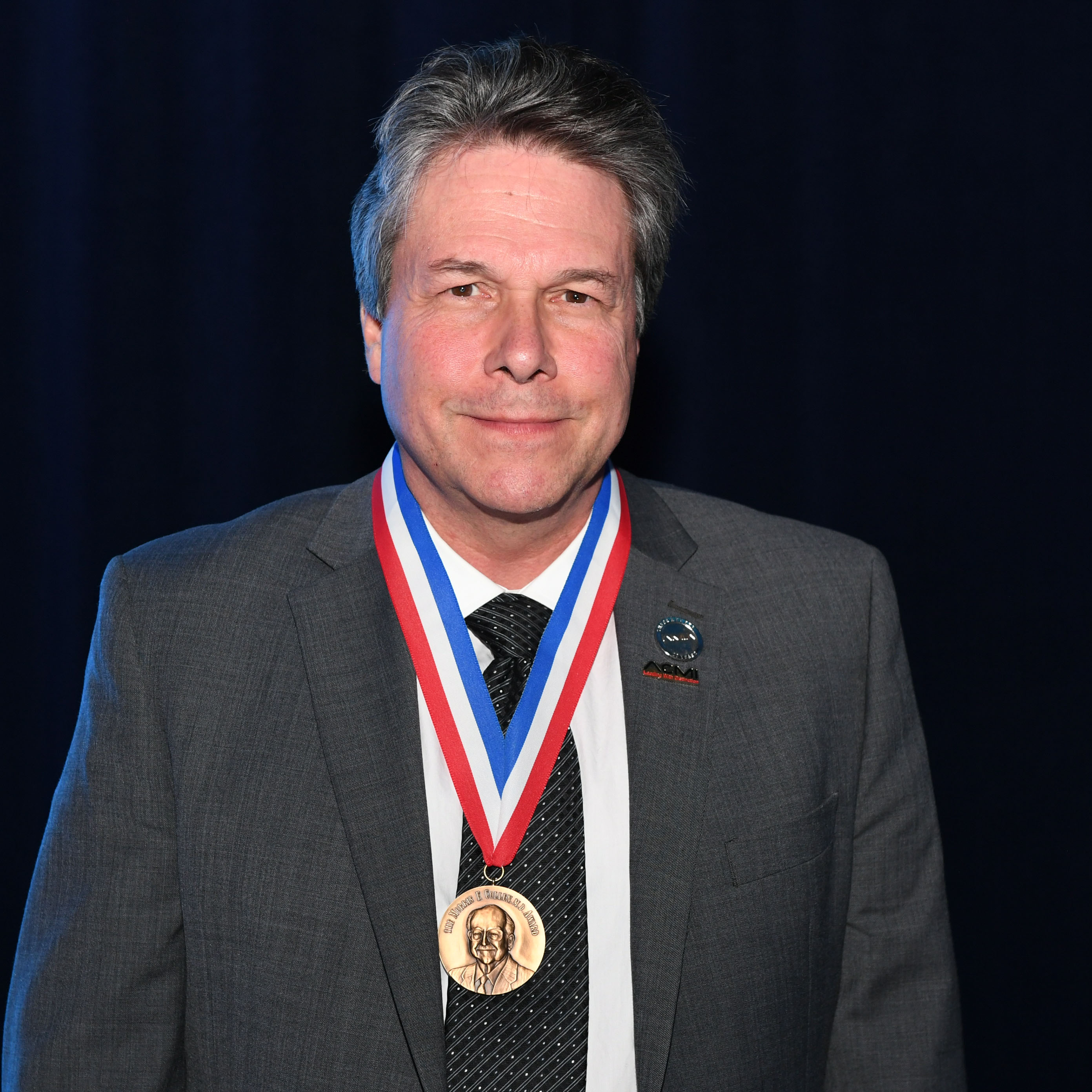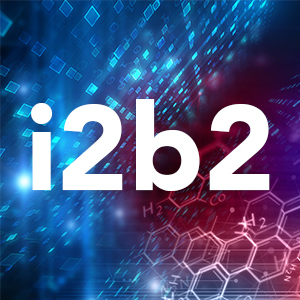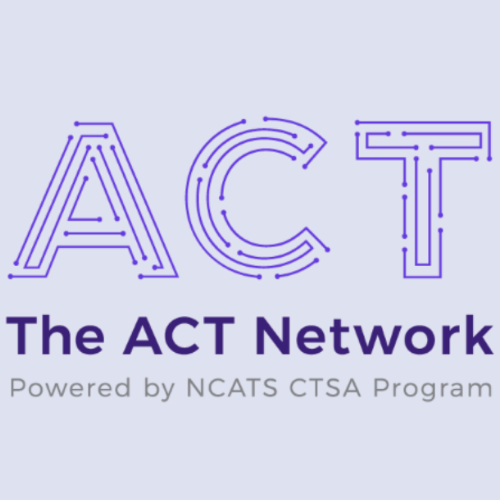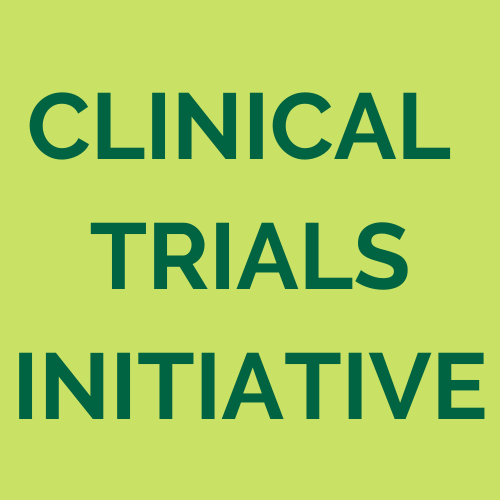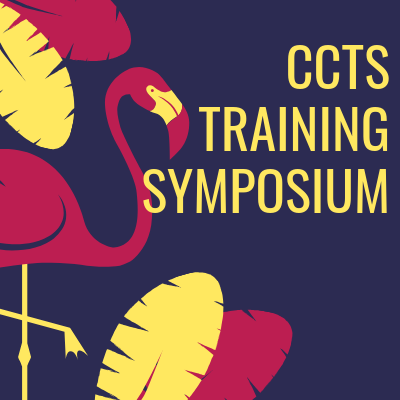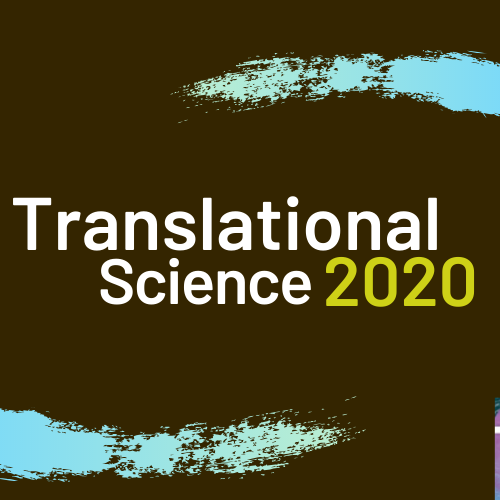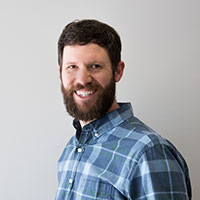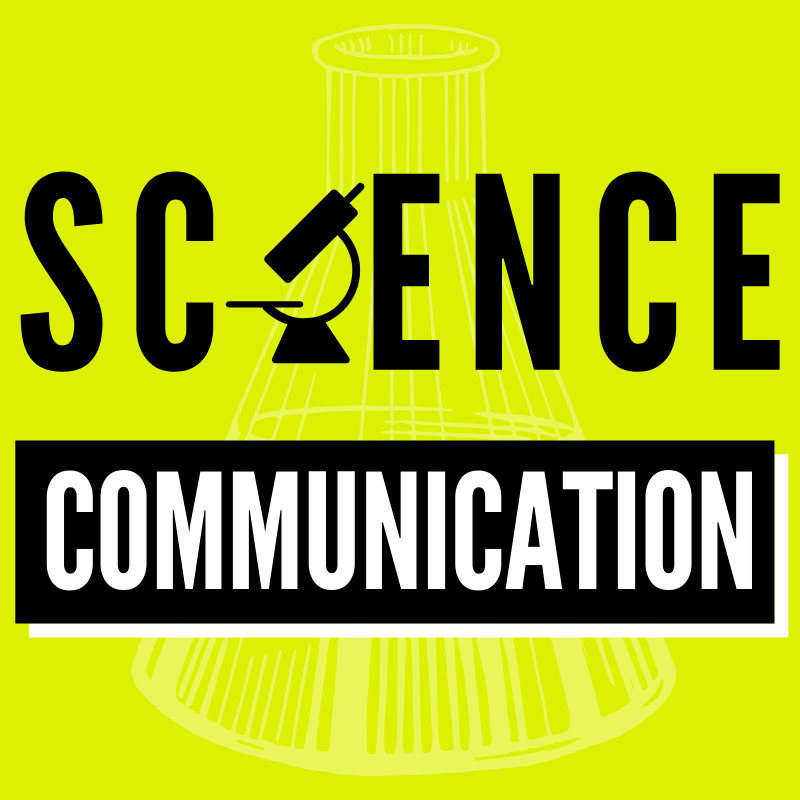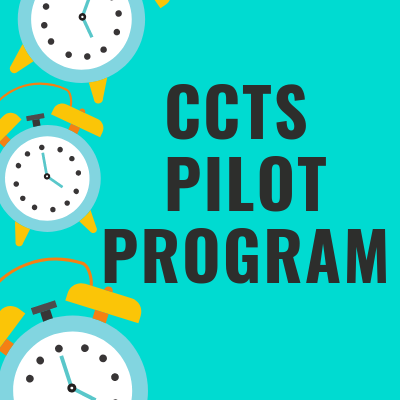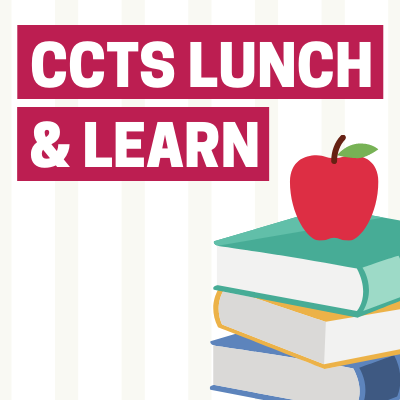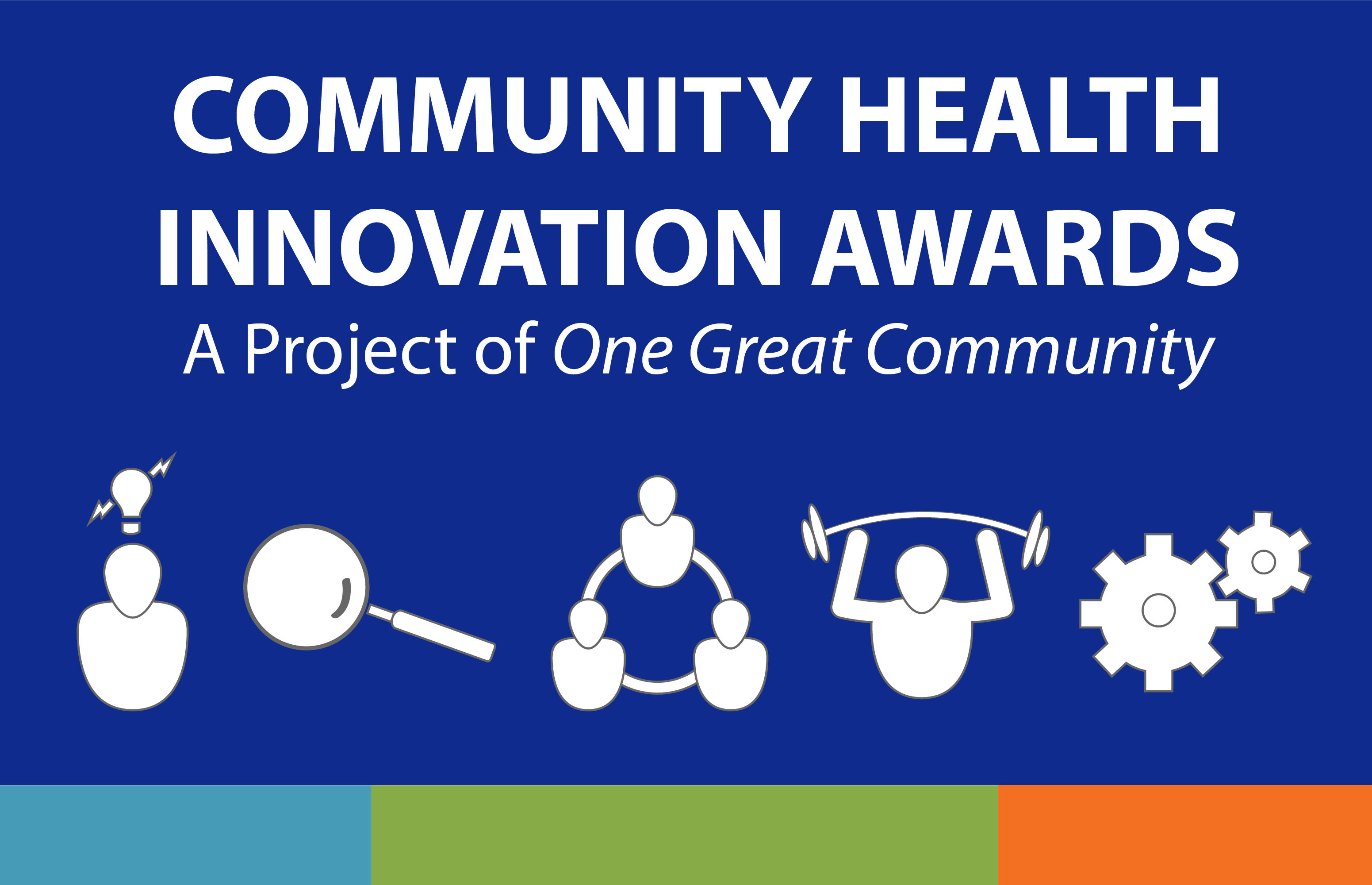-
October 2019 - March 2022
Community Engagement Institute (CEI) Perspectives: Maternal Mortality, April 27th
The CCTS will host the next CEI Perspectives on Friday, April 27th from 2-4pm, focused on the issue of Maternal Mortality. This virtual event features a panel of experts from the Jefferson County Dept. of Health, Auburn School of Nursing, Alabama State Perinatal Division, and more, leading discussions around this critical issue facing communities in our region and beyond. Through this discussion we aim to explore ways to partner in research toward solutions.
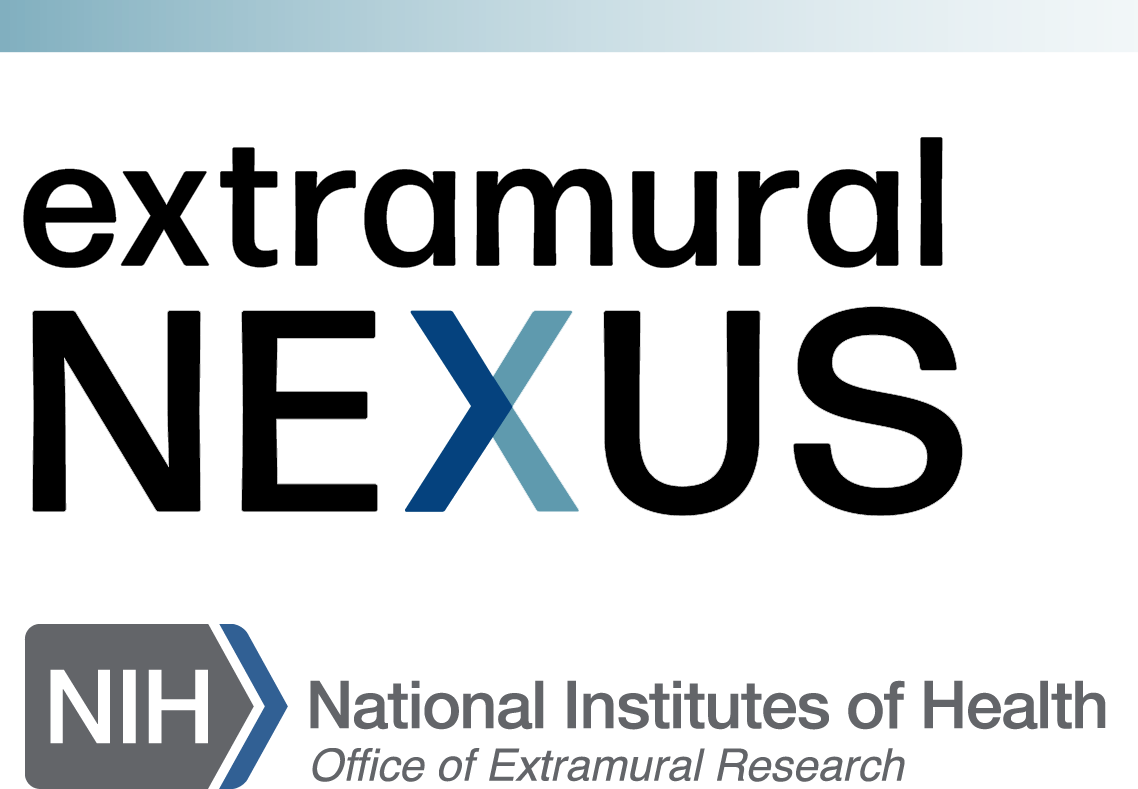
Top 10 Problems Reviewers Cite in Applications
We know this time of year is filled with a rush to meet many grant application deadlines. The NIH Office of Extramural Research recently shared their list of common pitfalls reviewers identify while critiquing grant applications. Check out the list here!
Looking for additional support in strengthening your grant applications? Click here to learn about CCTS Panels and to request yours today!
Data & Safety Monitoring Boards: Understanding the Role of the Chair
Richard Whitley, MD, Co-Lead of the CCTS Drug Discovery initiative and UAB Distinguished Professor, recently shared lessons he’s learned over many years of participating in research studies. His 14-minute presentation provides guidance for each step of successful collaboration with your DSMB chair.
Announcing the 2022 CCTS TL1 Predoctoral Trainees
We are thrilled to announce the newest cohort of CCTS TL1 Trainees, beginning this year of research-training to develop projects focused on reducing health disparities and/or diseases that disproportionately affect the Deep South. We appreciate all the incredible individuals who applied for this opportunity, and look forward to sharing more about the 2022 cohort in future Digest issues.
Mining the Genome: Issue 12
The NIH All of Us Research Program has released its first genomic dataset of nearly 100,000 whole genome sequences, delivering one of the most diverse datasets of its kind.
Save the Date for the 6th Annual Translational and Transformative Informatics Symposium (ATTIS)
Mark your calendars and ready your abstracts for ATTIS 2022, hosted by the UAB Informatics Institute and the CCTS and taking place April 25th from 8am-5pm via Zoom, with an in-person reception to follow. ATTIS offers faculty, postdoc trainees, and graduate students an opportunity to report progress on the latest informatics research and applications in biomedical sciences.
CCTS Panels Program: Over 1400 Investigators Can’t Be Wrong
Spring and summer NIH application deadlines are approaching! Increase your odds for a successful submission three-fold by utilizing a CCTS panel.
Project Panels leverage the community of scholarship across the CCTS Partner Network to work with you to brainstorm ideas, generate research questions, meet possible collaborators, fine-tune study design, and sharpen your proposals. Whether you want a multi-disciplinary panel of experts for your proposal or a quickly-deployed, tailored group, we assemble the expertise needed to work with you to strengthen your project.
New Community & Scientific Action Board (CSAB) to Guide Community-Engaged Research, Support Health Priorities in the Region
Reflecting new opportunities and synergies in collaboration with the Hub’s Center for the Study of Community Health (its CDC-sponsored Prevention Research Center), the CCTS Engagement of Communities initiative has formed a CSAB by merging the Jefferson County Community Participation Board and the CCTS One Great Community Council. Its members are already identifying priorities and gaining momentum.
In Case You Missed It: The 2022 CCTS Bioethics Forum
This year’s Forum, held on February 18th, provided a platform for conversations surrounding racial disparities and inequities in translational science and healthcare and what to consider to help move the needle toward better representation in research and quality of care for all.
Register for Case Studies in Collaboration & Teamwork
This 8-week case-based curriculum, open to individuals and teams, aims to help scientists learn the basics of team science and collaboration along with how to navigate the challenges of working in interdisciplinary teams. Instructor Joel Dobbs, PharmD, says, “Teamwork and collaboration are skills that are universally recognized across almost every industry and discipline as essential tools for success in today’s world. Interdisciplinary teams are becoming more critical for success in scientific discovery and translational research.” Sessions are Fridays from 10-11am, March 11 – May 6.
Get to Know the 2022 CCTS Bioethics Forum Panelists
The 2022 CCTS Bioethics Forum: Translational Science and the March to Health Equity, is happening this Friday, February 18th from 11-1pm via Zoom. This year’s Forum will offer discussion on the topic of systemic racism with a goal to express the most effective measures to combat or mitigate the issues of health inequity in translational research. The panel of speakers represent diverse backgrounds and experiences that will enrich the discussion.
CCTS Bioethics Forum is Three Weeks Away!
Register today to attend the 2022 CCTS Bioethics Forum: Translational Science and the March to Health Equality, hosted by Tuskegee University. Through panelist and audience discussion, this event will explore the most effective measures to combat or mitigate the issues of health inequity in translational research. What needs to change? What should remain the same? Where do we go from here to overcome systemic racism? This event will take place on February 18th from 11am-1pm CT via Zoom.
CCTS Welcomes New Program Director
Clifford Kennon, EdS, MPA, CPP, joins the CCTS Engagement of Communities team, bringing over 25 years of experience in higher education administration and community outreach to the role.
2021 Year in Review
Over the past year, our work together has relied on tenacity and resilience, and we have been prosperous in our mission to improve health and health equity across our region. The resounding theme for getting us there? Partnerships. The 2021 CCTS Year in Review is a virtual experience that celebrates these collaborative victories. It contains a glimpse of 2021 efforts. I hope you will take a few moments to enjoy these vignettes of the work completed across each domain of the CCTS. Each vignette reflects the commitment to our work together and the deep appreciation that we have for all of these efforts. Let’s have the energy and excitement continue to grow in all of our endeavors this year.
The 2022 Clinical and Translational Science Training Program Begins!
Last week the group met for the kick off of the 6-month series designed to sharpen their clinical and translational science competencies. The diverse cohort represents a variety of disciplines and backgrounds.
Start the New Year with Your CCTS
As you ease into the new year, we hope you’ll make plans to join the CCTS with these upcoming and ongoing programs and supports.
Case Studies in Mentoring Returns on January 10
Over nine sessions, Drs. Lisa Jackson and Christy Carter will walk participants through common (and not-so-common) mentoring challenges. These case-based discussions help participants discover new strategies to maximize the benefits of this career-enhancing skill.
New Leadership in the CCTS Training Academy
Dr. Nita Limdi and Dr. Jessica Bumpus join the CCTS to advance workforce development across the network.
UALCAN: Taking Cancer Data Further
UALCAN (University of ALabama at Birmingham CANcer web portal, “You all can!”), is a comprehensive, user-friendly, and interactive web resource for analyzing cancer OMICS data that includes large scale cancer RNA sequencing and clinical proteomics data.
This resource was developed and released to public use by Darshan Chandrashekar, PhD, from the Department of Pathology and O’Neal Comprehensive Cancer Center, under the leadership of Sooryanarayana Varambally, PhD, to enhance the speed of the cancer research, biomarker and target discovery. This resource is developed for usability by both experts and researchers with no background in large scale sequencing and data analysis. Since its inception in late 2017, this continuously evolving cancer data analysis portal has received over 760,000 site visits from across the world and over 2,100 citations and received over 1000 citations in 2021.
Find out what UALCAN can do for your cancer research today.
Community Engagement Institute (CEI) Perspectives: Community Violence, December 17th
The CCTS and UAB Center for the Study of Community Health will host “CEI Perspectives: Community Violence” Friday, December 17th from 1 to 3pm. This virtual event features a compelling panel of speakers and welcomes community members across our region to join in the discussion. This event seeks to create a forum for open dialogue to better understand the causes, current efforts underway, and possible solutions to addressing violence in our communities.
Learn more and register to bring your perspective to the conversation.
Get to Know the 2021 CCTS Trainees and Scholars
This series will come to a close with our final three introductions! This week get to know Kristy Broman, MD, MPH, Hope Gray, and Sydney Weir, and their individual research foci and more. Learn more about the CCTS TL1 (currently accepting applications) and KL2 programs.
2021 Annual Rural Health Conference Call for Abstracts
The Rural Health Conference, hosted by the University of Alabama (Tuscaloosa) April 14 & 15, 2022, brings together health care professionals, community leaders, Rural Health Conference researchers, government officials and policymakers who hear from speakers in the field and share information and knowledge about rural health issues, as well as solutions to address those issues. The Institute for Rural Health Research (IRHR) invites you to share your work in our poster and oral presentation sessions.
The focus of this event will be "Tightening the Stroke Belt: Prevention, Emergency Management, and Rehabilitation of Stroke in the Nation’s Most Affected Region." The deadline for submissions is January 7, 2022.
NCATS at 10: Improving Health for All Through Translational Science
Register for this celebratory event covering 10 years of NCATS progress, with additional conversation on what we should look ahead to in the future.
CCTS Predoctoral Clinical/Translational Research Program (TL1) Applications Due in One Month
The immersive program provides 12 months of protected time for trainees to develop projects focused on reducing health disparities and/or diseases that disproportionately affect the Deep South. The program provides a stipend and support for tuition, among other benefits. Applications due December 15, 2021. Want to learn more? Hear from former TL1 trainee, Alex Razavi, MD, sharing a few thoughts on his experience in the program, his top three pieces of advice for future applicants and how the program affected his career trajectory.
Mining the Genome: Issue 10
The UDP has been an invaluable resource to patients who have been seeking a medical diagnosis, but it also possesses major value for the CCTS community. Here are three ways that anyone across the CCTS Partner Network can tap into UDP training and research opportunities.
Get to Know the 2021 CCTS Trainees & Scholars
This week we’re introducing TL1 trainees, Courtney Brock and Katherine Hebert from Tulane University, each sharing their research focus and more.
CCTS Clinical & Translational Science Training Program Applications Due November 15!
Don’t miss your opportunity to train with the experts! Clinical trials, biostatistics, ethics, outcomes research, dissemination of results and much more. Dr. Bertha Hidalgo leads this dynamic certificate course, held virtually each Wednesday from 8-10am, from January to June. Course credit available.
CCTS Bionutrition: Supporting Excellence in Nutrition Research throughout Our Region
The COVID-19 pandemic affected the capacity for nutrition studies at Vanderbilt University, so principal investigator Dr. Annet Kirabo and her team looked beyond their institution for a metabolic kitchen that could accommodate their project. And the partnership is playing out well.
CCTS & National COVID Cohort Collaborative (N3C)
From inception to utilization, CCTS investigators played a pivotal role in the National COVID Cohort Collaborative (N3C) – a centralized, clinical data resource that enables investigators to identify COVID-19 treatment and care strategies using patient-level data from more than 70 institutions.
Get to Know the 2021 CCTS Trainees & Scholars
Get to know more about the diverse scholars and trainees who bolster the mission of the CCTS with their short and long-term research interests.
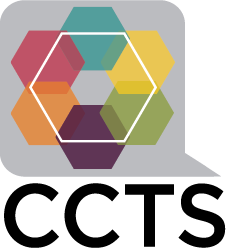
CCTS Assembles for Annual External Advisory Committee Meeting
Last week, the CCTS hosted its External Advisory Committee (EAC) for an opportunity to review the Center’s progress over the past year, and to strategize efforts for continued research excellence that improves the health of our communities.
After a welcome from Drs. Selwyn Vickers, and Chris Brown, leadership from across the Partner Network discussed collaborative opportunities surrounding COVID-19, chronic disease, community engagement, precision medicine, clinical research, informatics and much more. Allan Brasier, MD, Chair of the EAC and CTSA PI at UW Madison, shared encouragement surrounding the challenges all Hubs have faced due to the pandemic:
Our EAC Chair expressed, "Congratulations on maintaining momentum and on being able to address the important needs of trainees during this difficult time. You are positioned well with the strength of your Partner Network to continue to expand the reach and impact of the CCTS."
New Collaboration to Reduce Disparities in Chronic Diseases in the Deep South
Leveraging the Center’s Partner Network as the foundational enablement, CCTS investigators representing institutions across Alabama, Mississippi, and Louisiana have come together to establish the Deep South Center to Reduce Disparities in Chronic Diseases with a research grant from the National Institute on Minority Health and Health Disparities. This Center will be led by Andrea Cherrington, MD, Monica Baskin, PhD, Orlando Gutierrez, MD, and Gareth Dutton, PhD, with additional site leadership by Clayton Yates, PhD, Mario Sims, PhD, and Peter Katzmarzyk, PhD, and will involve Partners at UAB, Tuskegee University, the University of Mississippi Medical Center and Pennington Biomedical Research Center.
CCTS & TriNetX: A new paradigm to bridge sponsors, trial sites, and investigators in the conduct of clinical trials
In addition to providing access to far-reaching clinical data through its research network (see Part 1 in the series), TriNetX also connects researchers to clinical trial opportunities.
Now Accepting CCTS Predoctoral Clinical/Translational Research Program (TL1) Applications
This mentored research experience provides the tools and expertise to thrive as investigators in any setting (e.g., academic medicine, government, pharma).
The immersive program provides 12 months of protected time for trainees to develop projects focused on reducing health disparities and/or diseases that disproportionately affect the Deep South. The program provides a stipend and support for tuition, among other benefits. Apply by December 15, 2021.
Get Outside and Experience Fall in the Deep South
Fall is in full swing, even if that just means our temps are finally falling below 80 degrees. If you’re feeling the strain of over a year and a half of living and working through a pandemic, you might be ready for a break to get outside and enjoy the change of season. We’ve compiled a brief list of events and festivals across Alabama, Mississippi and Louisiana, and invite you to take a break and experience some of the fun in your area!
Hackathon Yields AI-Inspired Ideas to Fight Cancer
The third annual Data Science Hackathon took place in August, hosted by UAB Informatics Institute, the Center for Clinical and Translational Science, the O’Neal Comprehensive Cancer Center at UAB, and the UAB Hugh Kaul Precision Medicine Institute.
This year’s event aimed to tackle cancer-related challenges in healthcare, with 50 participants across 12 teams competing for the top prizes.
Get to Know the 2021 CCTS Trainees & Scholars
This series continues with introductions to Monica Abdul-Chani, MA, and Kristen Smith, MS, RD, both sharing their research focus and why their work matters to them.
Mining the Genome: Issue 9
Bruce Korf, MD, Director of CCTS Genomic Medicine, provides an update on recent and upcoming clinical research studies on newborn genome sequencing.
6 Tips for an Amazing Panel Experience
Gaining feedback before submitting a grant application can be invaluable, and the CCTS is proud to be a partner in this process. Follow these tips to have the best possible panel experience.
CCTS Regional Shared Facilities & Resources
Collaboration with the CCTS Partner Network creates many opportunities for expanding and improving research capacities, including access to unique facilities across the southeast region. This list includes resources like the UAB Cryo-Electron Microscopy Facility (CRYO-EM) and Auburn University's MRI Research Center, and is continuously being updated with more assets.
Get to Know the 2021 CCTS Trainees & Scholars
This week we’re sharing more of the investigators who are using using their mentored career development awards to strengthen their science and advance their careers as translational thinkers and researchers.
Get to know Natalie Hohmann, PharmD, PhD, and Carmen E. Capó-Lugo, PT, PhD.
The CCTS Partner Network Pilot Program is accepting pre-applications!
Through this program, we seek to ameliorate health conditions that disproportionately affect our region as represented by the CCTS Partner Network, and to develop the future translational research workforce by fostering collaboration, team science and innovative discovery. Proposals should be set in the context of health conditions that disproportionately affect our region. The program supports investigators at any stage, with an emphasis on early-career PIs, from any of the CCTS Partner Network institutions. Applicants may request up to $60,000 (direct) with expectations of co-sponsorship (see full RFA for details).
Apply by October 25th at 5pm.
CCTS & TriNetX™: Advancing clinical research and population health with real-world data
If you aren’t yet familiar with TriNetX™, this two-part series will provide you with the knowledge you need to understand and utilize its capabilities. In part one, take a look at how its powerful real-world data platform helped researchers Pankaj Arora, MD, and Vibhu Parcha, MD, leverage the TriNetX Research Network to answer pressing questions surrounding pediatric COVID-19 patients in the United States, recently published in Nature Scientific Reports.
Mining the Genome - Issue 8
What happens after a genetic test is ordered by a clinician or research team? Connecting those test results to a patient’s electronic health record is critical to ensuring excellent and efficient care, but electronic health records were not designed for such. Dr. Bruce Korf, director of CCTS Genomic Medicine, shares the exciting new platform that will overcome this hurdle.
Get to Know the 2021 CCTS Trainees & Scholars
CCTS KL2 Scholar Nathaniel Jones, MD, and TL1 Trainee Seth Bollenbecker, PhD, share how their research furthers the mission of the CCTS.
Getting Started with Veterans Affairs Research: Two Investigators Share Their Experience
Though often not considered as having a research emphasis, VA medicine plays an important role in advancing research in diseases that disproportionately affect minority and special populations. Drs. Yaguang Xi and Courtney Alexander, former and current CCTS Pilot awardees, are embarking on research studies that will address these health disparities, and they’re sharing why they chose to enter VA research.

Mugavero Appointed CCTS Co-Director
Michael Mugavero, MD, MHSc, has been appointed a Co-Director of the Center for Clinical and Translational Science (CCTS), charged with providing strategic vision and leadership on behalf of the CCTS in collaborating with UAB Medicine and University-Wide Interdisciplinary Research Centers (UWIRC) partners to advance the UAB Learning Health System (LHS).
In this capacity he will take point in working with CCTS Domain leaders to identify, integrate, and coordinate cross-domain programs and resources aligned with overarching UAB LHS goals. Along with the CCTS Executive Committee, Mugavero will engage with Partner Network leaders to identify opportunities to advance multi-site LHS efforts across academic health centers in our three state region, building upon ongoing initiatives.
Mining the Genome - Issue 7
The overall goal of CCTS Genomic Medicine is to integrate genomics into the fabric of medical practice across the enterprise. There are many unanswered questions regarding how to take that task on most effectively in the context of rare disease, common disease, and cancer, but Dr. Bruce Korf offers a snapshot of what questions are being answered with the current projects underway.
NIH Diversity Related Funding Opportunity Announcements
From the bench to the bedside, the CCTS is on a mission to improve health and health equity in communities across the Deep South. Central to that mission is a focus on building a diverse and well-trained translational workforce. Here are a few opportunities both nationally, and through the CCTS, that are available to investigators as we work together to build diversity in translational research.
Get to Know the 2021 CCTS Trainees & Scholars
This week we continue sharing more of the investigators who are using protected time to strengthen their science and advance their careers as independent researchers.
Get to know Desalyn Johnson and Griffin Wright.
Request for Applications: CCTS Diversity Supplement for DRIVEN Scholars
The CCTS is accepting letters of interest from early career scholars committed to conducting translational research that addresses health disparities and/or diseases/conditions that disproportionately affect the Deep South. In partnership with the Driving Research: An Interdisciplinary, Vibrant, Engaged Network (DRIVEN) program, this opportunity will support Scholars for a period of two years with 75% salary support, up to a maximum of $100,000 annually.
LOIs are due July 31, 2021.
Now Accepting Applications for LEAD: Learn, Enhance, Advance, Drive
This one-year, cohort-based program is designed to enable junior faculty and director-level staff to enhance their interpersonal, professional and leadership skills. The cohort meets face to face (or virtually) for a couple of hours each month to learn about themselves, to enhance their interpersonal effectiveness, to advance objectives through building quality teams and to learn to drive change. In between the monthly sessions, participants will complete tasks they set to reach their goals.
CCTS Welcomes New Director of the UAB Physician Scientist Development Office, William M. Geisler, MD, MPH
Dr. Geisler will work closely with the CCTS to create new programs and learning opportunities for physician scientists spanning undergraduate summer research through early career faculty and beyond.
Get to Know the 2021 CCTS Trainees & Scholars
The CCTS is proud to introduce a few more of the investigators who are using protected time to strengthen their science and advance their careers as independent researchers.
Learn more about Dr. Samantha Hill, Keonte Graves, and Claudia Edell.
Re-engineering the Clinical Research Enterprise in Response to COVID-19: The CTSA Experience
Several CCTS authors contributed to this special issue of the Journal for Clinical and Translational Science, each describing specific challenges and lessons learned about the terrain of pandemic research.
Get to Know the 2021 CCTS Trainees & Scholars
You might be familiar with the names of some of the newest CCTS trainees and scholars, but we wanted to give them a chance to really introduce themselves. This week we're chatting with Kayla Frey, 2021 TL1 Scholar from the UAB School of Medicine in the department of Otolaryngology.
Join the Hundreds of Investigators Excelling with CCTS Panels
Since 2013, the Panels Program has helped over 1000 researchers achieve success from project conceptualization, to grant submission, to commercialization and more. Here’s why participating in a CCTS panel is time well spent at any stage of research.
I-Corps@NCATS Participant Dr. Karim Budhwani Receives $50,000 Award for NIH Innovation Commercialization Accelerator for Startup
On Dr. Budhwani’s award for his company, CerFlux, Dr. Molly Wasko, CCTS innovation leader shared, “This is a huge win—this is the pathway we want our I-Corps@NCATS participants to go down!”
How Strong is Your Ability to Adapt & Grow? A Lesson in Resilience
Candida Rebello, PhD, recently shared the practical tools that equip anyone, but especially those in academia, to overcome career roadblocks and develop the skills to persevere.
New! Telehealth Resources for Clinical Researchers
This new web page provides planning tips for telehealth projects, information on eMedicine technology platforms, and an electronic form for telehealth project consultations.
Biostats4You Launches with Biostatics Training Tailored to All Researchers
Biostats4you was developed by CCTS BERD and the ACTS BERD Shared Interest Group to serve medical and public health researchers and professionals who wish to learn more about biostatistics. Curated topics include sample size calculators, power and sample size concepts, finding and working with a biostatistician, data collection and management, hypothesis tests and p-values, and screening and diagnostic tests.
Questions? ContactThis email address is being protected from spambots. You need JavaScript enabled to view it.
2021 Translational Research Summer Series Kicks Off Next Month
The Translational Research Summer Series is an eight-week, virtual lecture series, hosted by the CCTS Training Academy. Expert speakers introduce translational research to investigators: from translating your question into a project, project/team management, and research methods, to preparing a scientific abstract and writing your manuscript. This program is for investigators who have not yet had the chance to participate in the series and provides an introductory foundation for a career in translational science.
“The Summer Series was an ideal learning experience for me, as a clinician interested in using my real-world experience as the backbone for my research. The programming was practical, and the lecturers were approachable, which enhanced the overall quality of the course. The online format also allowed me access to this series where normally I wouldn’t have access. I’d recommend the course to anyone interested in improving clinical outcomes. From those just starting out on their research journeys like me, to the highly experienced researchers looking to take their work to a more translational tilt.” – Robin Riddle, PT, DPT, UAB School of Public Health, Department of Health Behavior Doctoral Student
Introducing the NCATS Life Course Visual Toolkit
While this new asset includes informative life course research webinars, it really shines in its easy-to-use short talks that provide compelling examples of what can be gained by incorporating complexity science into translational life course research. The new toolkit also includes channels for:- How to Mine Observational Data to Link the Phenome & Exposome
- How to Integrate Data Across the Lifespan
- Statistical Methods for Complexity Science
- How to Implement Public Policy
Interested in applying for NCATS’ Small Business Program funding? Five things to know as you get started.
Last week, NCATS hosted a webinar of helpful tips for small business funding through SBIR/STTR programs, and the CCTS tuned in to gather the top five takeaways for anyone interested in applying.
I-Corps@NCATS program kicks off May 28, hosted by the CCTS and the Georgia Clinical & Translational Science Alliance
The I-Corps@NCATS program is a 5-week short course, based upon the successful National Science Foundation I-Corps and I-Corps at NIH Entrepreneurial Training Program. The short course helps prepare teams to apply to go on to a national program at NSF or NIH, and is designed to help all participants, regardless of the stage of development of their innovation.
On the impact of the program, former I-Corps@NCATS participant Dr. Andrew Smith, Vice Chair of Clinical Research and Professor of Radiology at UAB, and founder of AI Metrics, LLC, says, “The I-Corps@NCATS experience was a critical component for our customer discovery, allowing us to better direct our efforts toward what the customer really wanted rather than forcing a product of our own design to a market that may not have accepted it. My team has continued using what learned as we begin our sales cycle and enter the market.”
Click here to register.
Mining the Genome - Issue 5
Dr. Bruce Korf shares how the UDP team helps patients with symptoms of disease that remain undiagnosed, and how the gift of answers aids further discovery.
Annual CCTS Bioethics Forum Yields Powerful Conversation
Last Friday’s forum addressed common questions surrounding vaccine hesitancy and scientific mistrust.
CCTS Announces the 2021 Predoctoral Trainees!
The CCTS is pleased to announce the newest cohort for the Predoctoral Clinical/Translational Research (TL1) Training Program.
Translational Science 2021 (TS21) is Here: CCTS Engaged in Sharing, Learning
Here is the list of presentations, abstracts, and posters from across the CCTS Partner Network! See the schedule here.
Translational Science Misconceptions
In this article Christopher Austin shares the biggest surprise he’s experienced as the director of the National Center for Advancing Translational Sciences (NCATS).
Mining the Genome - Issue 4
Mining the Genome: Electronic Medical Records and Genomics (eMERGE)
The framework for genomic risk assessment and management for common diseases continues to evolve and Nita Limdi, PharmD, PhD, MSPH, and her team are working to measure its value in preventive healthcare.
Meet the 2021 CCTS Bioethics Forum Panelists
The virtual event will focus on equity and trust for COVID-19 testing, treatment, and vaccination, and features an amazing lineup of experts leading the discussion on March 19th. Learn more about this event and register here.
2020 Year in Review
Over the next few weeks, we'll be highlighting just a few of 2020’s achievements from across each domain of the CCTS.
CCTS Welcomes New CTSTP Cohort
The Clinical and Translational Science Training Program kicked off last week with a diverse cohort of 29 participants across disciplines.
10 Holiday Activities You Can Do During a Pandemic
Wondering how to get in the holiday spirit without gatherings and other traditional activities? This list will help you enjoy the coming days and weeks in a safe, socially-distant way!
Didn't Catch the Grant Proposal Development Academy? Here's What You Missed.
This 6-week, comprehensive overview of how to develop, write, and submit winning grant proposals wrapped up last week, but you can still tune in!
Mining the Genome - Issue 2
This month, we had a chance to discuss the All of Us Research Program with Dr. Korf. The launch of the Research Workbench Beta is driving forward momentum of genomic medicine research and is available to investigators now.

What You Need to Know about Agreements for Sponsored Projects & IRB Approval
Effective October 20, 2020, UAB Policy 005 has been revised to remove the long-standing requirement of IRB approval before UAB executes a research agreement. The revised policy continues to emphasize the responsibility of the UAB Principal Investigator to ensure no human subjects research occurs until the UAB IRB has approved the project. In the past, per Policy 005, OSP was required to hold agreements until IRB approval was obtained. Departmental personnel must take every precaution to ensure that no human subjects research, including patient care activities or accruals, occur before IRB approval.
Details of the revised policy can be found at the UAB policies and procedures library. For questions regarding this policy revision, please contact your OSP officer.
CCTS and UAB Collat School of Business to host “Accelerating Your Research to the Commercialization Stage” on Nov. 18th
Lili M. Portilla, MPA, SBIR/STTR Program Director for the National Center for Advancing Translational Sciences, will be presenting “Accelerating Your Research to the Commercialization Stage – How to Leverage the NIH NCATS Small Business Technology Transfer Funding and Resources". Don’t miss this unique opportunity to connect directly with the NIH.
Now Accepting CCTS Predoctoral Clinical/Translational Research Program (TL1) Applications
This mentored research experience provides the tools and expertise to thrive as investigators in any setting (e.g., academic medicine, government, pharma). The immersive program provides 12 months of protected time for trainees to develop projects focused on reducing health disparities and/or diseases that disproportionately affect the Deep South. The program provides a stipend and support for tuition, among other benefits.
CCTS Awarded for National Innovation Corps (I-Corps) Program Expansion
The I-Corps@NCATS program will continue to grow in reach, providing even more scientists critical support to help move their discoveries to the marketplace.
Register for the All of Us Researcher Workbench Onboarding Session
The All of Us Researcher Workbench is open for beta testing! Now, approved health researchers may begin using All of Us dataset and tools in studies. There will be an onboarding session on Nov. 4th from 10:30-11:30am via Zoom.
Register now.
Mining the Genome 1.0
The CCTS Digest will begin featuring a monthly column dedicated to the field of genomic medicine, to spotlight efforts and developments underway and to connect CCTS members to research opportunities.
CCTS Partners Participate in the Community Engagement Alliance (CEAL) Against COVID-19 Disparities
The CEAL program is funded by a $12 million NIH award that supports teams in 11 states, including institutions in the CCTS Partner Network, representing Alabama, Louisiana, and Mississippi, enabling the research of COVID-19 awareness and education, especially among minority populations, and the inclusion of these communities in vaccine and therapeutic clinical trials. Dr. Robert Kimberly, CCTS Director and Co-PI on the Alabama CEAL team says, “We have seen firsthand that COVID-19 disproportionally affects disadvantaged communities. We need inclusive research that represents all of our diverse communities to find treatments and vaccines that are effective for all Americans.” Through the Southern Commonweal, which integrates community engagement efforts across the Partner Network, information exchange has already been set in motion, leading to significant efforts in the fight against COVID-19.
Community Engagement Institute (CEI) 2020 Wrap-Up
With over 200 participants from across the region, this year’s CEI event, Sharing the Torch: Mobilizing Across Generations, was a great success!
CCTS Awarded NIH IMPROVE Supplement
Under the leadership of Dr. Monica Baskin, the CCTS has received an NIH Administrative Supplement to investigate and improve maternal health and pregnancy outcomes.
CCTS Now Accepting Applications for CTSTP 2021
Become a translational thinker and increase your team science skills with our virtual, six-month Clinical and Translational Science Training Program (CTSTP)! This competitive, career-boosting opportunity is open to grad students, postdocs, and faculty from across the CCTS Partner Network.

CTS Alumnus Anand Iyer, MD, MSPH, Receives Prestigious Paul B. Beeson Emerging Leaders Career Development Award in Aging
The Paul B. Beeson Award supports investigators committed to geriatrics and aging research, in addition to leadership. Only 7-10 are awarded each year from the National Institute of Aging. Anand Iyer, MD, MSPH, is a pulmonologist and intensivist, is UAB’s first recipient of this prestigious award. Iyer says partnerships and pursuits with both the CCTS and COERE (UAB’s Center for Outcomes Research) “played a vital role in my career journey from mentorship, career and research guidance, peer support, and most importantly, provided me an amazing community of cool investigators. I really learned how to do clinical research with these teams.” Through the support of this award, Iyer will continue to help transform care for older adults with chronic lung diseases. Any award of this level would make an impression on an investigator, but the Beeson Award represents something even more for Iyer. “Beyond the direct support for career development and research, the Beeson Award brings full circle a geriatrics arch in my career trajectory that began as an EMSAP (Early Medical School Acceptance Program) and UHP (University Honors Program) student at UAB 15 years ago doing summer research with geriatricians at the Birmingham VAMC and Center for Aging, now Integrated Center for Aging Research. Completing that arch is intangible.”
Check Out Our Newest Web Resource for COVID-19 Vaccine Information
We’ve compiled a list of common questions and answers surrounding vaccines and clinical studies.
Registration is open for the CCTS Grant Proposal Development Academy
This virtual, six-week overview of the ins and outs of developing, writing, and submitting winning grant proposals will be presented by Research Administrators, Faculty, and Funding Agency Program Officers. This opportunity is open to the CCTS Partner Network and is best suited for junior faculty, postdocs, and early-stage investigators.
Join us in congratulating Drs. Eta Berner and George Howard!
Dr. Eta Berner, CCTS Senior Scientist and member of the Center’s Informatics leadership team, was recently named University Professor in the UAB Dept. of Health Services Administration in the School of Health Professions. In her recommendation for this honor, Dr. Sue Feldman wrote, “Many industries have a phrase for the person to whom the experts go. In music, it is the musician’s musician; in medicine, it is the doctor’s doctor. Eta is the professor’s professor. She tirelessly mentors others, contributes to the field, and thinks of innovative ways to reach students.”
Receiving the honor of Distinguished Professor is Dr. George Howard, in the UAB Dept. of Biostatistics in the School of Public Health. Dr. Howard was founding Director of the CCTS Biostatistics, Epidemiology and Research Design Unit. “Dr. Howard, with his passion for helping colleagues succeed in their academic goals, established the foundation of the productive multidisciplinary BERD unit we have today. “ –David Redden, PhD, Director, CCTS Biostatistics, Epidemiology & Research Design (BERD).
Register Today! Spots for this Specific Aims Intensive will fill quickly.
This three-session Intensive, co-hosted by the CCTS Training Academy and UAB School of Nursing, will feature presentations by the UAB SON faculty, followed by workshops providing the guidance needed to create an effective specific aims page.
N3C is Open for Business. Learn How to Get Started.
The National COVID Cohort Collaborative (N3C) has created a large, centralized data resource available to the research community to study COVID-19 at a scale and statistical power not possible within any single institution.
UAB Seeks Distributed Informatics Analytics Core (DIAC) Director
The University of Alabama at Birmingham (UAB) seeks a Director to oversee its new Distributed Informatics Analytics Core (DIAC), a central group of biomedical informatics analysts.
COVID & Communities: Access, Education, & Testing
The Southern Commonweal integrates community engagement efforts across the CCTS Partner Network, and its members are making every effort to improve health outcomes for those most affected by COVID-19.
Saying Goodbye to Lucy's Coffee and Tea
You submitted some of the wonderful ways Lucy’s was included in your research and career journeys and we’ve enjoyed reading and assembling this tribute to be shared with the Lucy’s community
Morning Coffee Conversations Continue: Concerns and Logistics for Resuming Research at UAB
Take a look at a few of the topics that have been discussed over “Morning Coffee” thus far.
Gearing Up for Reentry: Returning to Clinical Studies
Clinical and research personnel will be the first to embark upon reentry at the CCTS “Hub”. Here are the key guidelines you’ll need to follow, as set forth by the Resumption to Research (R2Ops) Committee.
Meet the CCTS 2020 Pilot Awardees
The CCTS is pleased to announce the 2020 Interdisciplinary Network Pilot Program Awardees.
Working with COVID-19 Biospecimens
With the current halt to all non-essential lab research, it’s no surprise that many investigators are considering new studies related to the COVID-19 Pandemic. The CCTS has compiled resources from the Hub, Partner Network, and beyond for navigating the bio-containment standards that come with COVID-19 research.
CCTS Tools That Will Keep You Moving Forward
Need a change of pace this week? Here are six ways to utilize CCTS capacities to reignite your research momentum!
CCTS Forum Recap: Conducting Clinical and Translational Research in the Time of COVID-19
The research playing field looks quite different these days and is evolving quickly; here is what you should know as it currently exists.
Finding the Balance: A Work-From-Home Survival Guide
Start the week with a plan for tackling some of the common work-from-home challenges you might be facing.
Crash Course for Clinical Research: Where to Start & What to Know
Here are the four things you need to know from the clinical research experts who provided key insight during this month’s CCTS Forum.
5th Annual CCTS Bioethics Forum Roundup
Tuskegee University hosted another successful event featuring thoughtful and honest conversation.
Meet One of this Year’s Community Health Innovation Award (CHIA) Winner, Chocolate Milk Mommies
The Founders of Chocolate Milk Mommies employ a community-based approach to tackling reproductive health disparities.
CCTS Welcomes New CTSTP Cohort
The Clinical and Translational Science Training Program (CTSTP) kicks off another year with 46 new trainees!
Announcing the 2020 TL1 Trainees!
Congratulations to the 2020 CCTS Predoctoral Clinical/Translational Research Program cohort!
Calling All Research Teams: U-BRITE 2.0 Launch Day is January 29th!
If you are examining large genomic and clinical data sets, this launch event is for you.
CCTS Research Seminar Series: Common Rule Single IRB Mandate
Here’s what the mandate could mean for your research.
Register Today for the 5th Annual CCTS Bioethics Forum
This year’s forum on February 3rd focuses on the engagement of diverse populations in research, featuring challenges and lessons from five cohort studies.
NIH Representatives Visit the CCTS “Hub”
Drs. Mike Kurilla and Erica Rosemond spent the day learning more about activities across the partner network.
CHIA 2019 Grantees Announced!
CCTS is pleased to announce the grantees of the 7th Annual Community Health Innovation Awards. These five organizations were awarded funding for creative solutions to “on the ground” health challenges.
Required Training Gets Sweeter during February’s National Launch of Kaizen
Calling all trainees and early career faculty… Rigor, Reproducibility and Transparency (RT2) is required training for F, T, and K grants —secure it alongside others around the country playing a game that yields some sweet (literally) prizes.
CCTS External Advisory Committee Convenes for Annual Meeting
On December 3rd, members of the CCTS External Advisory Committee (EAC) traveled to Birmingham, Alabama to receive updates from across the CCTS Partner Network.
TL1 Program Application Deadline Extended
There is still time to apply for the Predoctural Clinical/Translational Research (TL1) Program—submissions will now be accepted until December 15th.
CCTS Co-Director James Cimino Receives 2019 Morris F. Collen Award of Excellence
The Morris F. Collen Award of Excellence is presented to an individual whose personal commitment and dedication to medical informatics have made a lasting impression on the field.
EDW Analyst-Supported Services: Complicated Queries Made Simple
After investigators run queries with i2b2 and receive the patient count or defined a cohort they desire, they often lean on EDW analysts to help them acquire deeper-level information.
Meet Dana Rizk, Medical Director of the Clinical Trials Administrative Office
Dana Rizk, MD, has been named the Medical Director for UAB’s Clinical Trials Administrative Office (CTAO). The CTAO oversees the various policies, procedures, systems, and initiatives supporting the clinical trials conducted at UAB. Read on to learn more about her background in clinical research, and why she’s excited for what’s to come.
i2b2: What It Can Do For You
Informatics for Integrating Biology and the Bedside (i2b2) is an NIH-funded scalable informatics framework designed for translational research. Read on to find out what makes it a unique and useful tool for designing and completing clinical studies.
Clinical & Translational Science Training Program Application Deadline Extended
The Request for Applications for this six-month certificate program that provides training in clinical and translational research will remain open until Friday, November 22.
CCTS Launches the ACT Network Enabling Easy, Nationwide Cohort Discovery and Data Sharing
The ACT Network is a real-time informatics platform allowing researchers to explore and validate recruitment feasibility for multi-site clinical studies across the Clinical and Translational Science Award (CTSA) consortium. The ACT Network is secure, HIPAA-compliant and IRB-approved, allowing researchers to design and implement data queries across scores of institutions from their own desktop.
Clinical Trials Initiative Town Hall Meetings
The Clinical Trials Initiative Town Hall Meetings have been taking place over the past week and will continue with a discussion on Wednesday, November 6th. All clinical research teams and PIs are invited to learn more about the tools, resources and best practices for the financial management of clinical trials.
Registration Closing Soon! Join us for the CCTS 2nd Annual Translational Training Symposium.
The 2nd Annual CCTS Translational Training Symposium will convene predoctoral, postdoctoral, and early career scholars, as well as their mentors and training grant leaders, from across the CCTS Partner Network for experiential training and career development sessions on translational and design thinking, grant writing, clinical trials, community engagement, and funding opportunities.
Translational Science 2020 Conference: Call for Abstracts Now Open!
More than 1,100 trainees, researchers and federal officers are heading to the nation's capital next spring for the Association for Clinical and Translational Science’s Translational Science 2020 Conference! Registration will open this December, but the call for abstracts is now live.
One-Minute Writing Improvements: Energize Your Words with Active Voice
Sometimes small changes can make all the difference. Improve your science writing with this quick read from Edge for Scholars.
Meet the One Great Community Council Members
The primary mission of the One Great Community Council is to strengthen partnerships with local community organizations and leaders, and to explore novel ways for community members to participate as partners in biomedical research. The council is a broad network of community-based organizations, business, and academic partners, and recently new members have been appointed.
Meet the OGC Council Members.
Ten Tips for Next Generation Interdisciplinary Research
Researcher Rachel Kelly has gleaned advice from interdisciplinary experts from 25 countries and across all continents, combining their tips into one useful list that includes a handy graphic.
Here's How to Add an ORCID to Your NCBI Profile
Several months ago, the NIH, AHRQ, and CDC announced that individuals supported by research training, fellowship, research education, and career development awards would be required to have ORCID iDs beginning in FY 2020 (see https://grants.nih.gov/grants/guide/notice-files/NOT-OD-19-109.html for the original notice.)
To add an ORCID to your NCBI Profile, follow these 3 steps or watch this brief video, courtesy of SciENcv, part of My NCBI (National Center for Biotechnology Information).- Register for your ORCID at https://orcid.org/register.
- Link your ORCID from eRA Commons, SciENcv biosketches, UAB Faculty Profiles, data repositories, and other appropriate professional sites such as LinkedIn or Scopus author IDs.
- Submit ORCID on grants, publications, data sets, etc.
Join the CCTS Leadership Team to Elevate Clinical and Translational Research to New Heights
With the recent renewal of its NIH award, the CCTS embarks on a new phase – CCTS 3.0 – to elevate platforms for scientific excellence, research partnership, workforce development and community engagement. This ambitious vision for growth and advancement will rely on our dedicated leadership team, with its enthusiasm and tenacity to develop strategic initiatives and facilitate their implementation. To support this growth, the CCTS seeks applications for the position of Deputy Director to expand the CCTS leadership team in the continuing development of clinical and translational investigation at the CCTS Hub at UAB and across the CCTS Partner Network.
So What? Why Your Science Communication Matters & How to Make it Better
Here are ten tips on how to better communicate your science—whether it is with a reporter, community member or science writer.
Meet Our New LEAD Cohort
Congratulations to our 2019-2020 Learn Enhance Advance Drive (LEAD) Cohort! These 16 participants are committed to enhancing their interpersonal and leadership skills. The purpose of the LEAD program is to build a pipeline of future leaders within UAB, the CCTS Hub.
Time is Running Out! Apply for the CCTS Interdisciplinary Network Pilot Program
The CCTS seeks to develop the future translational research workforce in a spirit that fosters collaboration, team science, and innovative discovery. Applicants may apply for up to $60,000 in direct costs, with the CCTS Hub committing up to half. Early Stage Investigators are strongly encouraged to apply by Monday, October 21.
In Case You Missed It: Bioinformatics Round Up
Jake Y. Chen, PhD, Co-Director of CCTS Informatics, presented “Bioinformatics for Single-cell Analysis: A Review of Computational Biology Trends and Application Opportunities” to a full house at a recent Informatics Institute PowerTalk Seminar Series. Those who attended listened as Dr. Chen discussed single-cell RNA sequencing as a revolutionary technology to study the heterogeneity and clonal evolution of cells.
September’s CCTS Lunch & Learn Breaks Attendance Record
More than 200 people attended the quarterly CCTS Lunch and Learn on Tuesday, September 17. The goal of the quarterly CCTS Lunch & Learn is to provide critical guidance on new or changing requirements in support of clinical research. September’s event included updates on OnCore, ClinicalTrials.gov, Compliance, Greenphire, and more. If you missed it, download the presentation slide deck and find the recorded presentation on the CCTS YouTube channel.
Plan to join us for the next CCTS Lunch & Learn on December 10.
CHIA Innovation Workshop 2019
Check out the latest photos from the Community Health Innovation Award's 7th Annual Innovation Workshop, which took place on Saturday, September 28.
CCTS Translational Training Symposium Registration Now Open!
Join the CCTS Partner Network at the second annual CCTS Translational Training Symposium in Gulf Shores, Alabama on November 14-15. This networking and learning opportunity offers grant writing and project manager training, interdisciplinary panel discussions, specific aims workshops, BERD consults, and much more. Reserve your spot today and take advantage of the CCTS room block rate. Registration will close Friday, November 1.
CCTS Accepting Applications for CTSTP 2020
Become a translational thinker and increase your team science skills with our popular six month Clinical and Translational Science Training Program (CTSTP)! This competitive, career-boosting opportunity is open to grad students, postdocs, and faculty from across the CCTS Partner Network. Apply by 5:00pm, Monday, November 4, 2019.
Broaden Your Career Options with the CCTS Predoctoral Clinical / Translational Research Program
This mentored research experience provides skills that will help equip the curious and creative with the tools and expertise to thrive as investigators in any setting (e.g., academic medicine, government, pharma). The immersive program provides 12 months of protected time for trainees to develop projects focused on reducing health disparities and/or diseases that disproportionately affect the Deep South. The program provides a stipend and support for tuition, among other benefits. Apply by Sunday, December 1, 2019.
- 2019
- 2018
- 2017
- 2016



